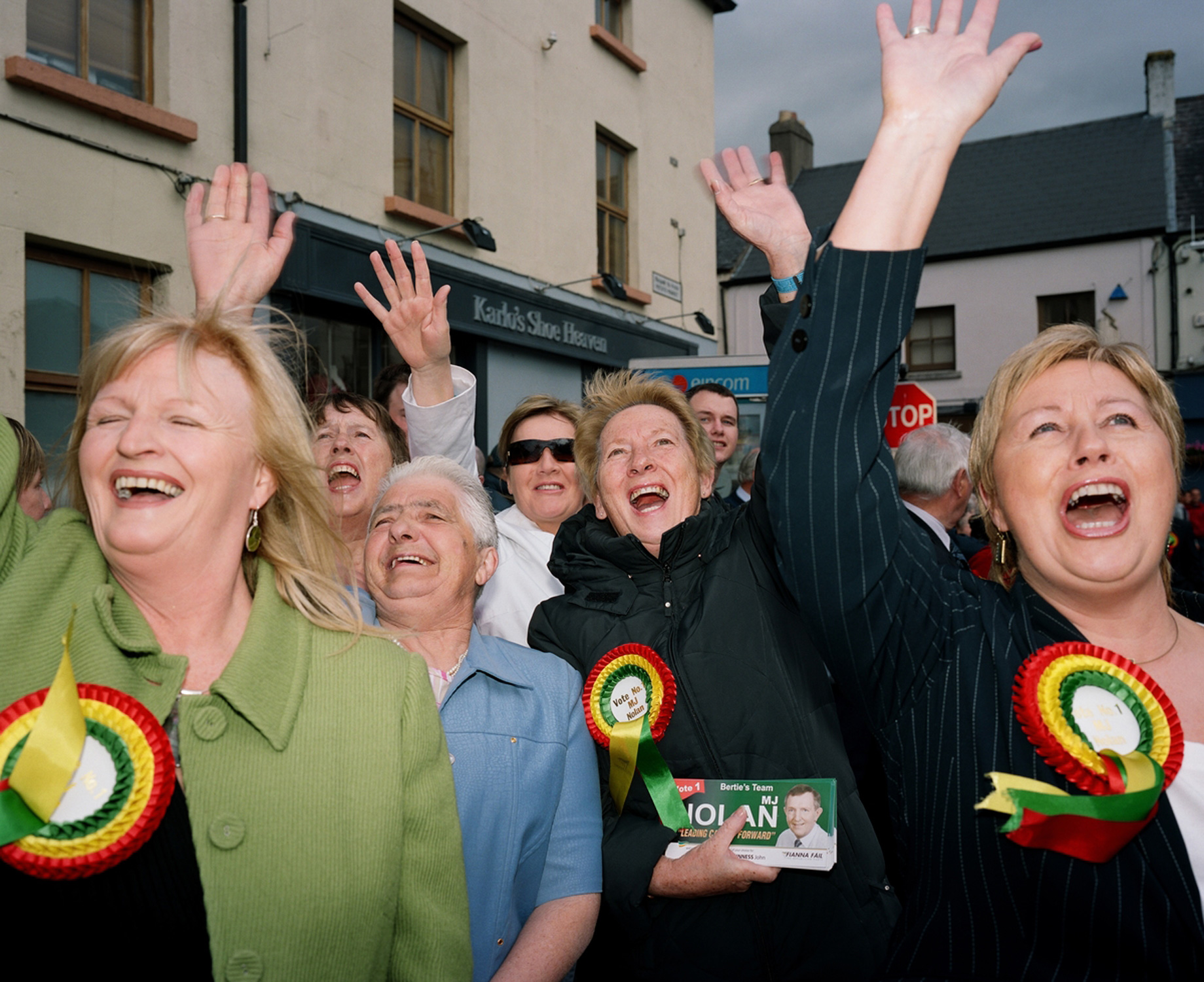
During the boom years of the Irish economy Fianna Fail surfed the wave of prosperity and popular appeal, emerging over successive elections as the country’s leading political party. Each ballot is preceded by an exhaustive nationwide campaign to capture voters, the party leader burning up the miles to engage with his followers and rally support. Babies are kissed, hands shook, promises made. In these moments Bertie Ahern, the Fianna Fail leader, was in his element. He had a natural rapport with what was often referred to as the plain people of Ireland, a connection that for a time translated into a winning streak at the polls. But beyond his hardened party faithful, the love wasn’t unconditional. This would prove the last of the good times before an economic crash transformed the political landscape and saw Ahern’s standing, and that of his party, plummet. Having been the premier force for generations, Ahern’s Fianna Fail were now in the pillory for poor governance, loose bank regulations and an unhealthy obsession with making a quick buck, their once-respected reputation in tatters.
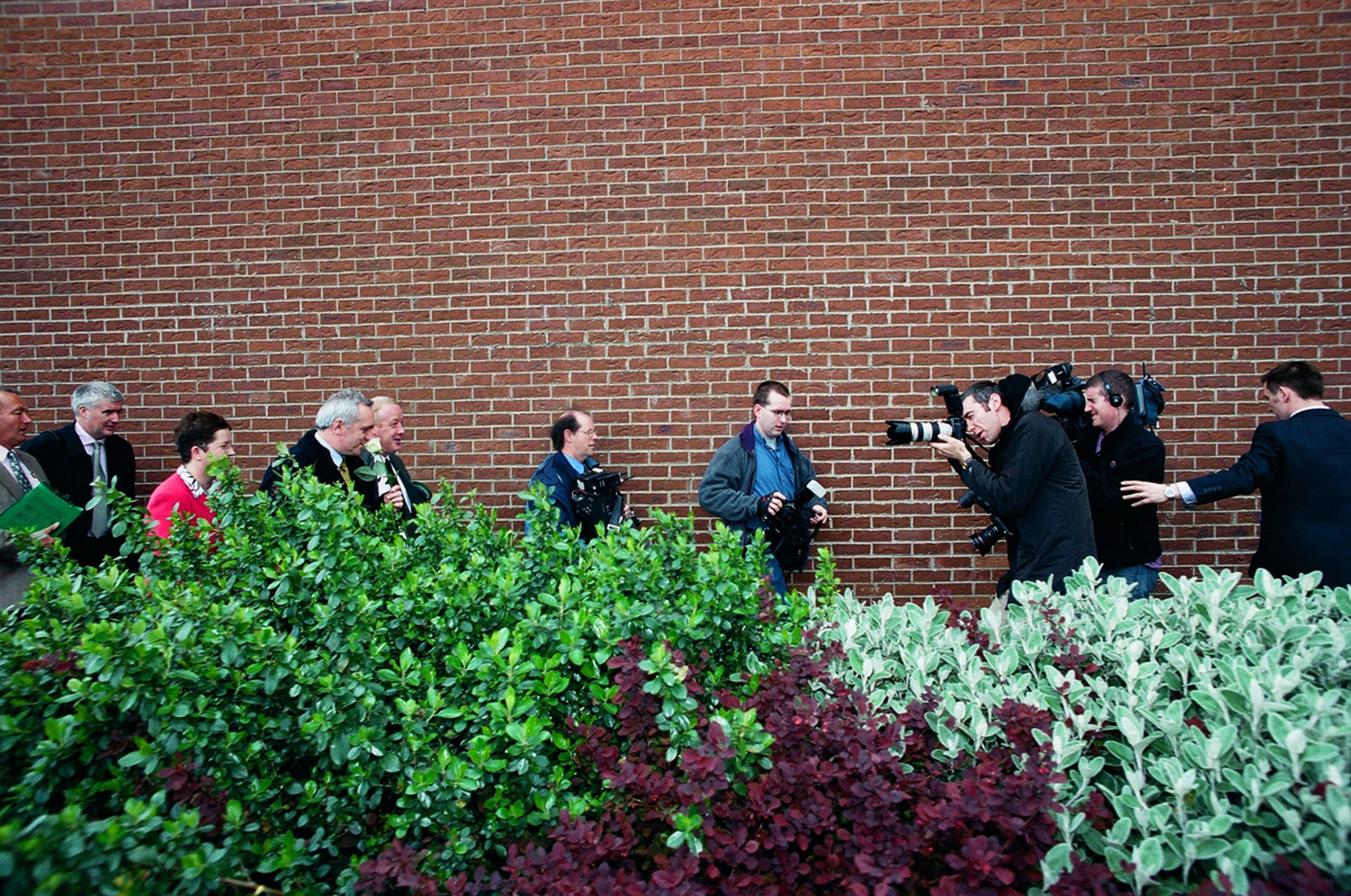
During the boom years of the Irish economy Fianna Fail surfed the wave of prosperity and popular appeal, emerging over successive elections as the country’s leading political party. Each ballot is preceded by an exhaustive nationwide campaign to capture voters, the party leader burning up the miles to engage with his followers and rally support. Babies are kissed, hands shook, promises made. In these moments Bertie Ahern, the Fianna Fail leader, was in his element. He had a natural rapport with what was often referred to as the plain people of Ireland, a connection that for a time translated into a winning streak at the polls. But beyond his hardened party faithful, the love wasn’t unconditional. This would prove the last of the good times before an economic crash transformed the political landscape and saw Ahern’s standing, and that of his party, plummet. Having been the premier force for generations, Ahern’s Fianna Fail were now in the pillory for poor governance, loose bank regulations and an unhealthy obsession with making a quick buck, their once-respected reputation in tatters.
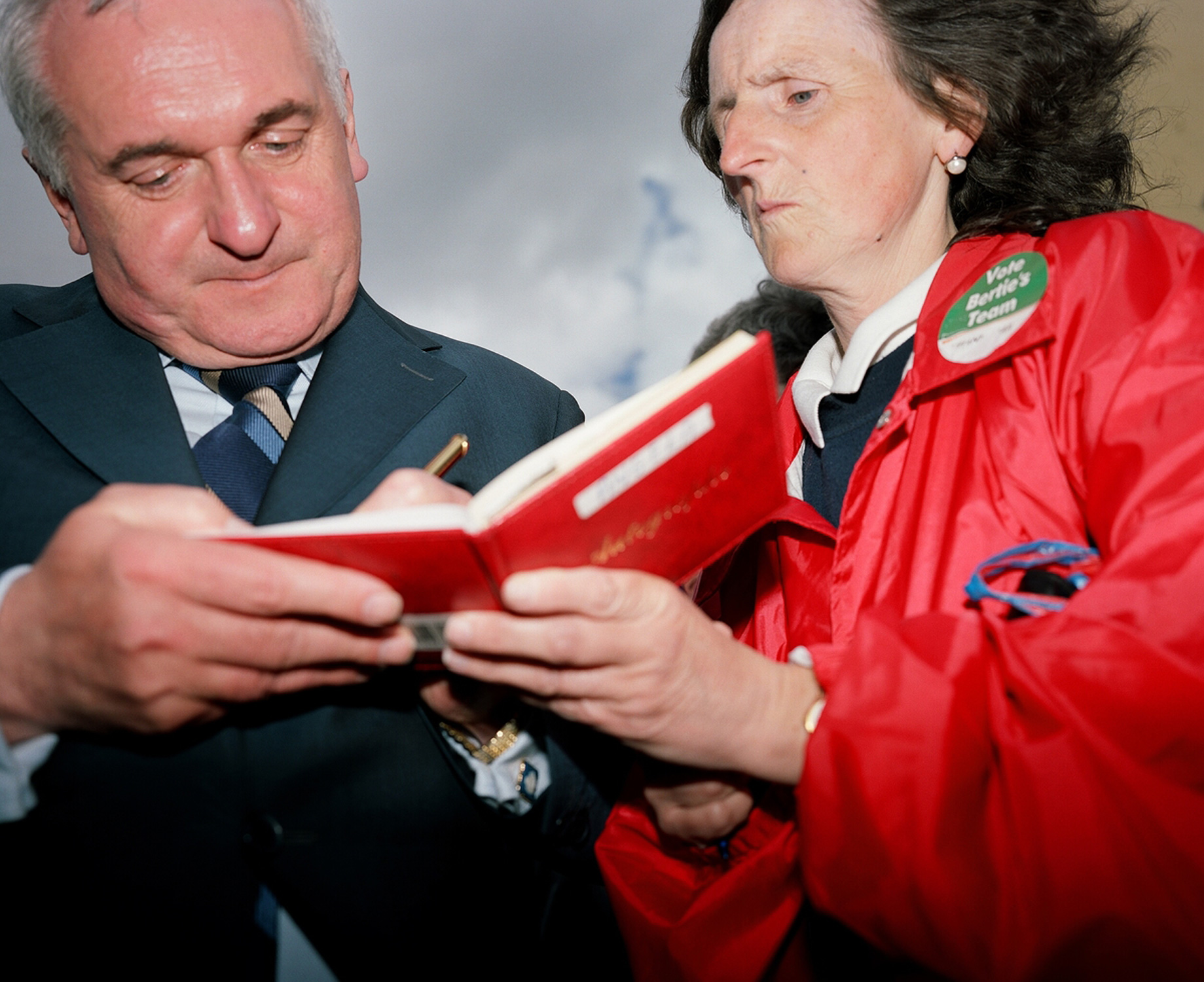
During the boom years of the Irish economy Fianna Fail surfed the wave of prosperity and popular appeal, emerging over successive elections as the country’s leading political party. Each ballot is preceded by an exhaustive nationwide campaign to capture voters, the party leader burning up the miles to engage with his followers and rally support. Babies are kissed, hands shook, promises made. In these moments Bertie Ahern, the Fianna Fail leader, was in his element. He had a natural rapport with what was often referred to as the plain people of Ireland, a connection that for a time translated into a winning streak at the polls. But beyond his hardened party faithful, the love wasn’t unconditional. This would prove the last of the good times before an economic crash transformed the political landscape and saw Ahern’s standing, and that of his party, plummet. Having been the premier force for generations, Ahern’s Fianna Fail were now in the pillory for poor governance, loose bank regulations and an unhealthy obsession with making a quick buck, their once-respected reputation in tatters.
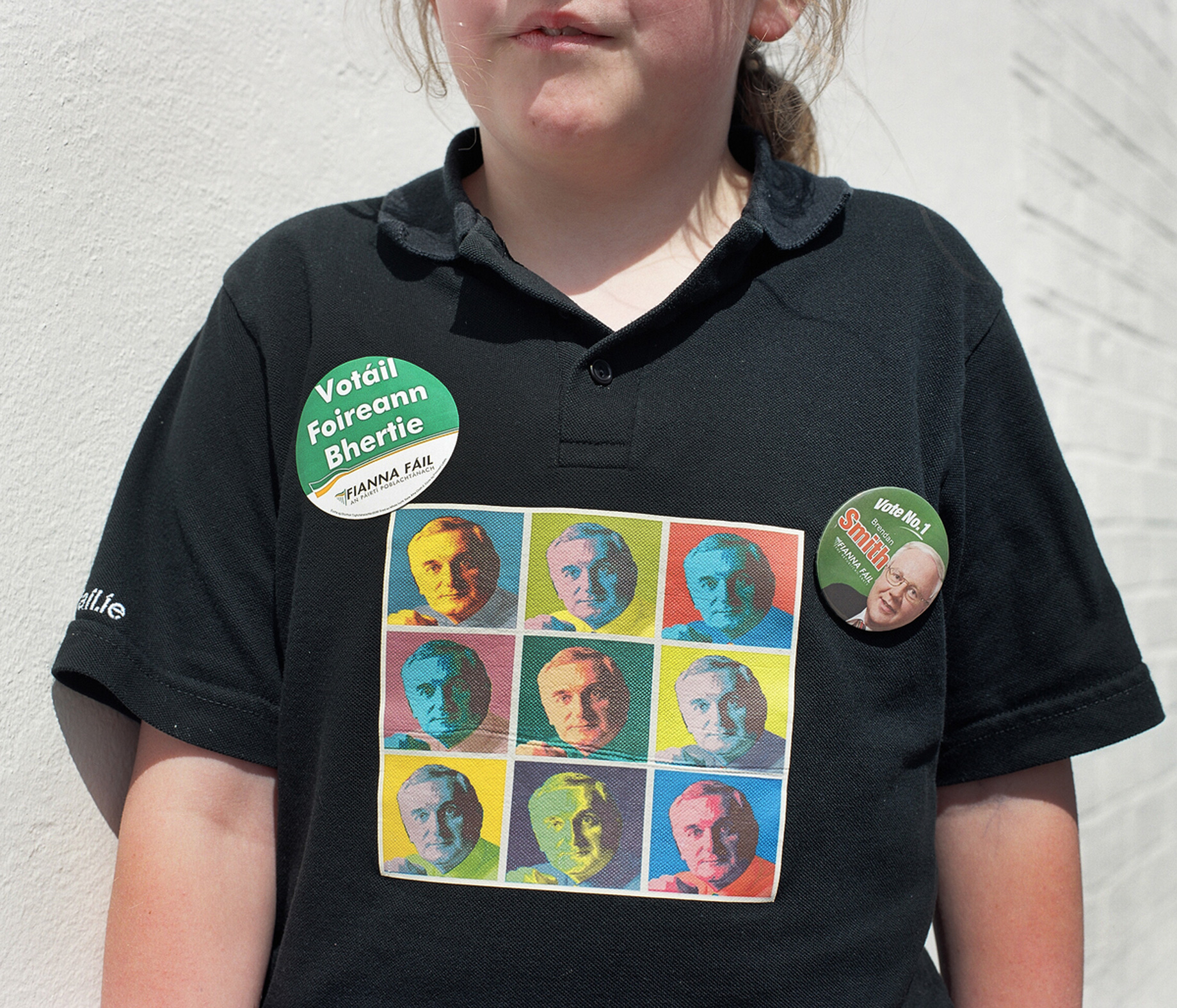
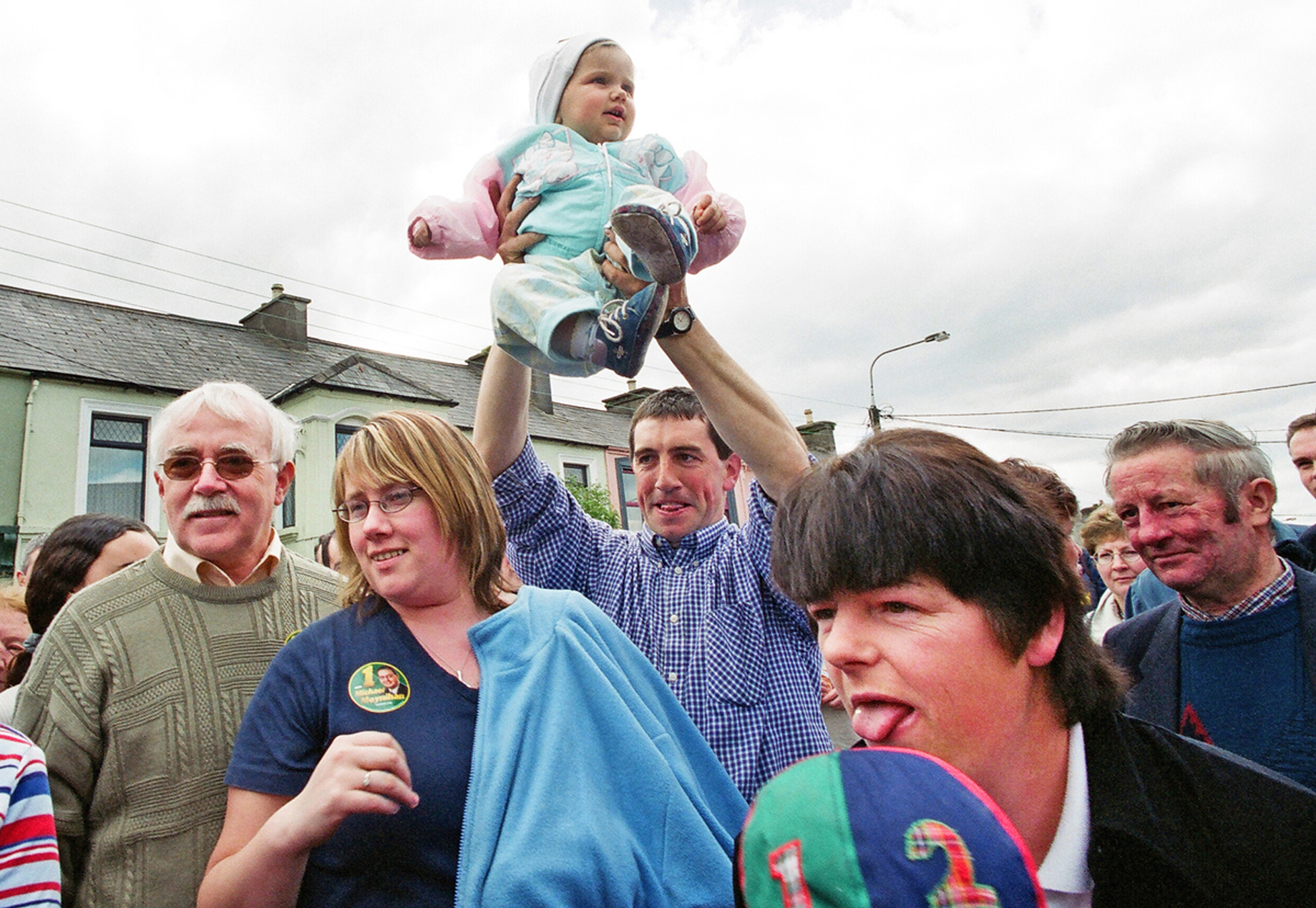
During the boom years of the Irish economy Fianna Fail surfed the wave of prosperity and popular appeal, emerging over successive elections as the country’s leading political party. Each ballot is preceded by an exhaustive nationwide campaign to capture voters, the party leader burning up the miles to engage with his followers and rally support. Babies are kissed, hands shook, promises made. In these moments Bertie Ahern, the Fianna Fail leader, was in his element. He had a natural rapport with what was often referred to as the plain people of Ireland, a connection that for a time translated into a winning streak at the polls. But beyond his hardened party faithful, the love wasn’t unconditional. This would prove the last of the good times before an economic crash transformed the political landscape and saw Ahern’s standing, and that of his party, plummet. Having been the premier force for generations, Ahern’s Fianna Fail were now in the pillory for poor governance, loose bank regulations and an unhealthy obsession with making a quick buck, their once-respected reputation in tatters.
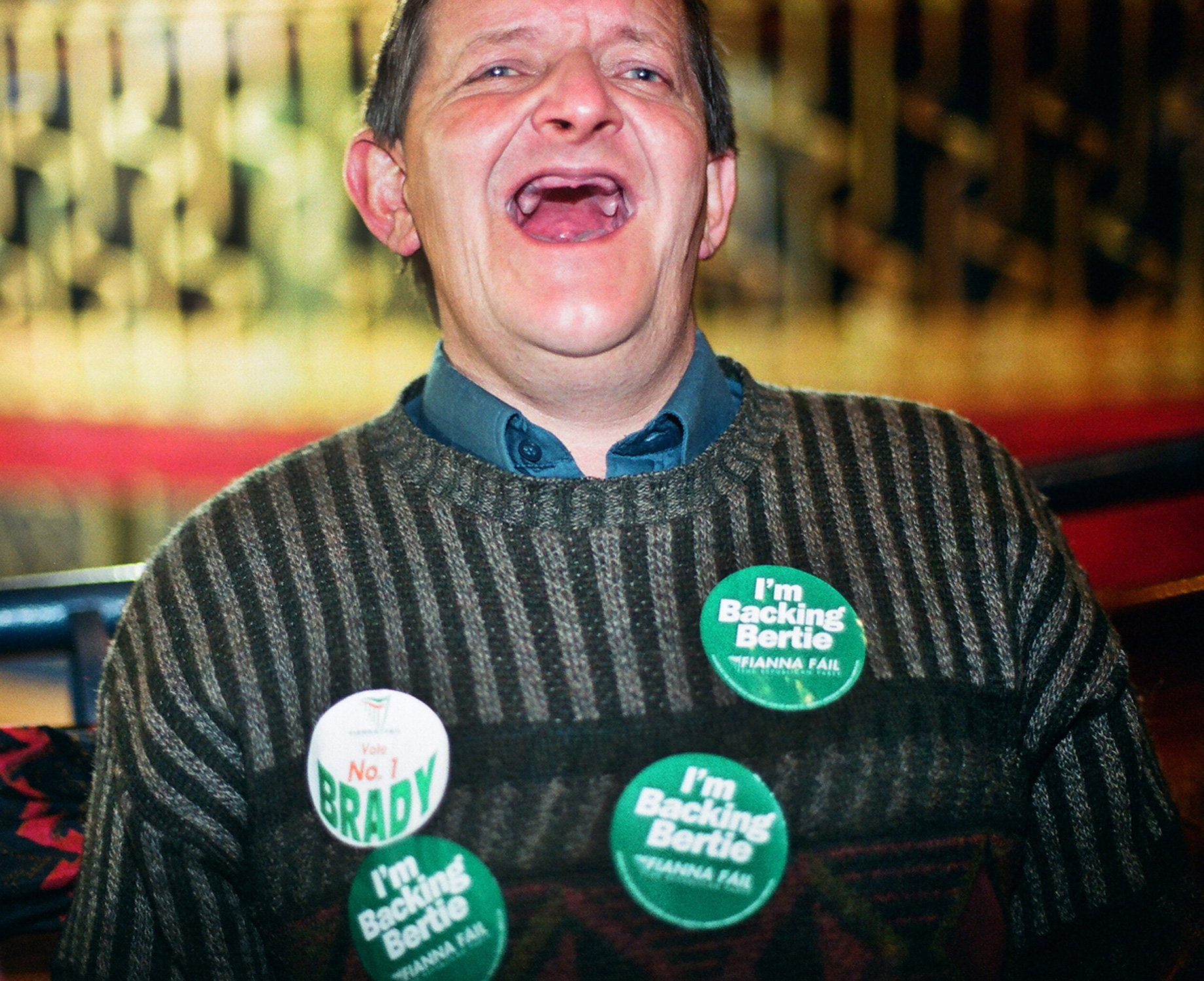
During the boom years of the Irish economy Fianna Fail surfed the wave of prosperity and popular appeal, emerging over successive elections as the country’s leading political party. Each ballot is preceded by an exhaustive nationwide campaign to capture voters, the party leader burning up the miles to engage with his followers and rally support. Babies are kissed, hands shook, promises made. In these moments Bertie Ahern, the Fianna Fail leader, was in his element. He had a natural rapport with what was often referred to as the plain people of Ireland, a connection that for a time translated into a winning streak at the polls. But beyond his hardened party faithful, the love wasn’t unconditional. This would prove the last of the good times before an economic crash transformed the political landscape and saw Ahern’s standing, and that of his party, plummet. Having been the premier force for generations, Ahern’s Fianna Fail were now in the pillory for poor governance, loose bank regulations and an unhealthy obsession with making a quick buck, their once-respected reputation in tatters.
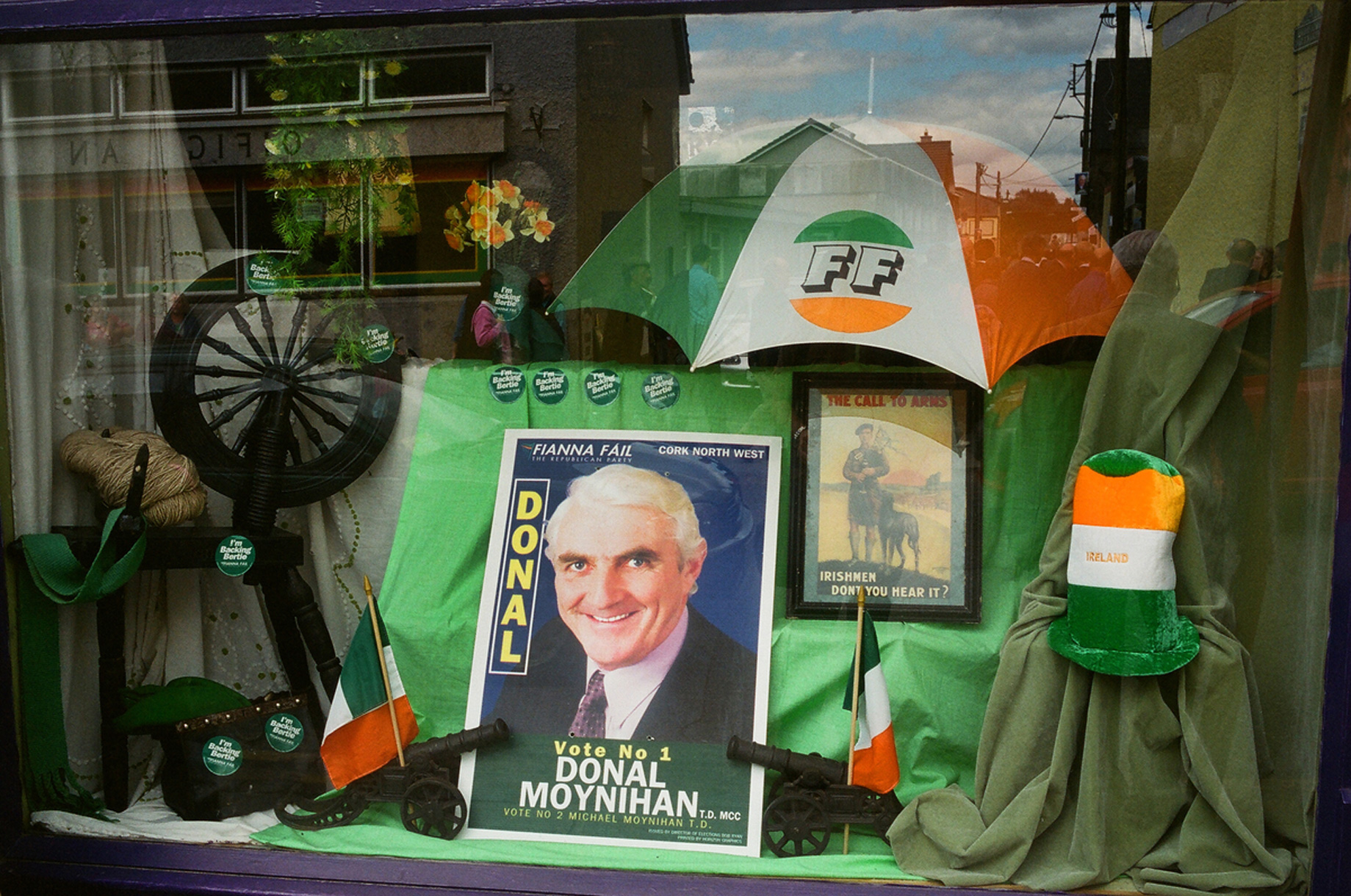
During the boom years of the Irish economy Fianna Fail surfed the wave of prosperity and popular appeal, emerging over successive elections as the country’s leading political party. Each ballot is preceded by an exhaustive nationwide campaign to capture voters, the party leader burning up the miles to engage with his followers and rally support. Babies are kissed, hands shook, promises made. In these moments Bertie Ahern, the Fianna Fail leader, was in his element. He had a natural rapport with what was often referred to as the plain people of Ireland, a connection that for a time translated into a winning streak at the polls. But beyond his hardened party faithful, the love wasn’t unconditional. This would prove the last of the good times before an economic crash transformed the political landscape and saw Ahern’s standing, and that of his party, plummet. Having been the premier force for generations, Ahern’s Fianna Fail were now in the pillory for poor governance, loose bank regulations and an unhealthy obsession with making a quick buck, their once-respected reputation in tatters.
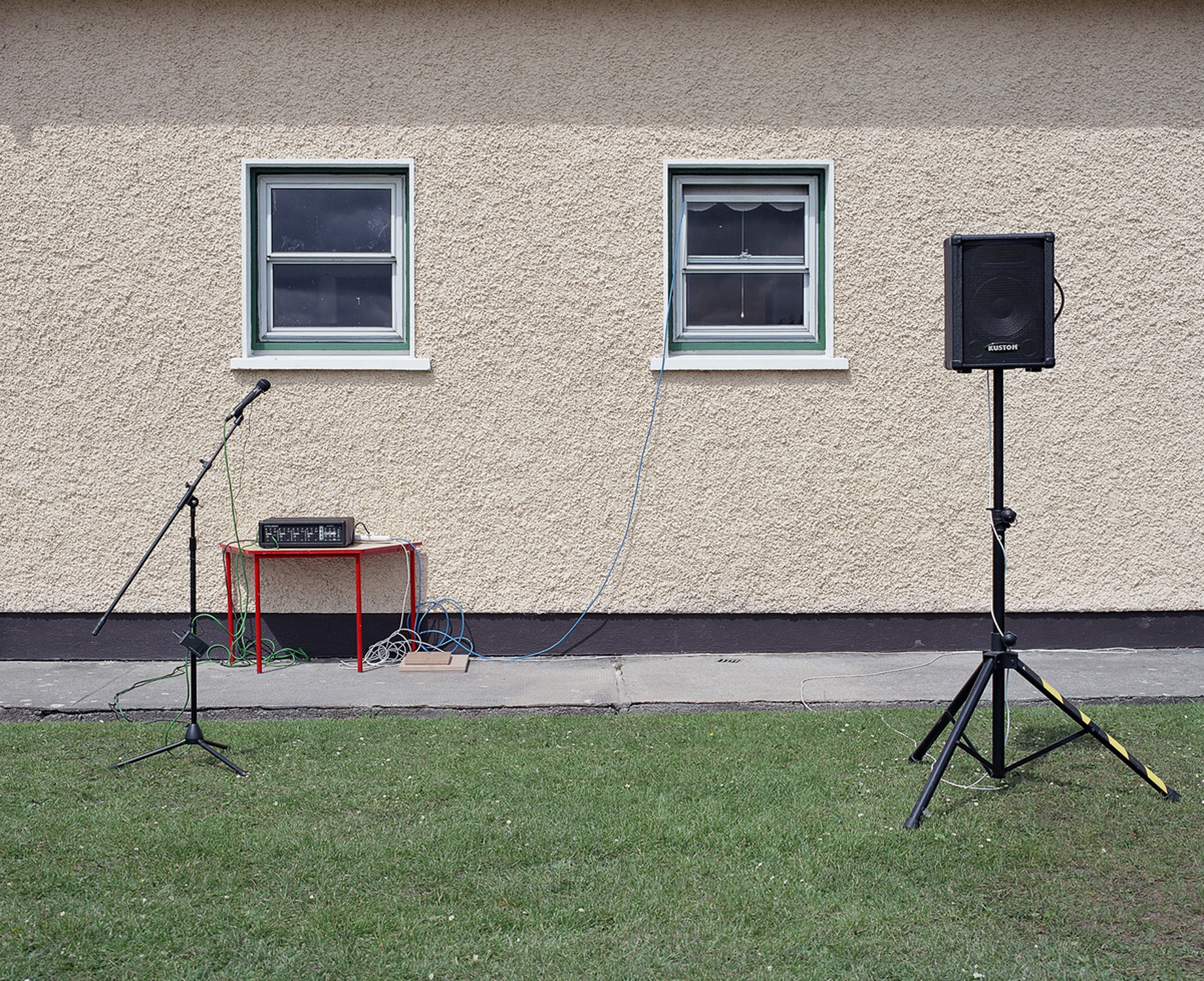
During the boom years of the Irish economy Fianna Fail surfed the wave of prosperity and popular appeal, emerging over successive elections as the country’s leading political party. Each ballot is preceded by an exhaustive nationwide campaign to capture voters, the party leader burning up the miles to engage with his followers and rally support. Babies are kissed, hands shook, promises made. In these moments Bertie Ahern, the Fianna Fail leader, was in his element. He had a natural rapport with what was often referred to as the plain people of Ireland, a connection that for a time translated into a winning streak at the polls. But beyond his hardened party faithful, the love wasn’t unconditional. This would prove the last of the good times before an economic crash transformed the political landscape and saw Ahern’s standing, and that of his party, plummet. Having been the premier force for generations, Ahern’s Fianna Fail were now in the pillory for poor governance, loose bank regulations and an unhealthy obsession with making a quick buck, their once-respected reputation in tatters.
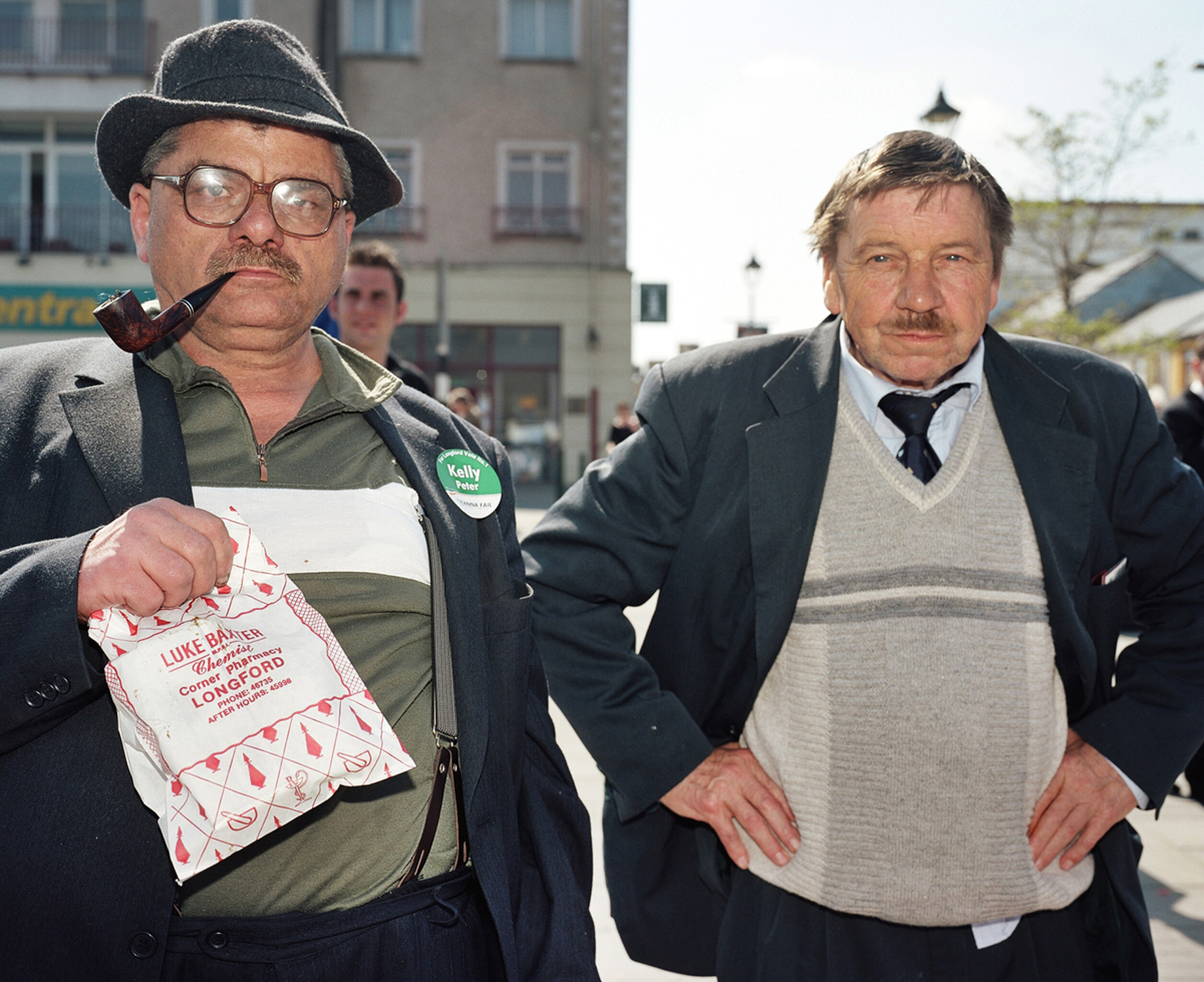
During the boom years of the Irish economy Fianna Fail surfed the wave of prosperity and popular appeal, emerging over successive elections as the country’s leading political party. Each ballot is preceded by an exhaustive nationwide campaign to capture voters, the party leader burning up the miles to engage with his followers and rally support. Babies are kissed, hands shook, promises made. In these moments Bertie Ahern, the Fianna Fail leader, was in his element. He had a natural rapport with what was often referred to as the plain people of Ireland, a connection that for a time translated into a winning streak at the polls. But beyond his hardened party faithful, the love wasn’t unconditional. This would prove the last of the good times before an economic crash transformed the political landscape and saw Ahern’s standing, and that of his party, plummet. Having been the premier force for generations, Ahern’s Fianna Fail were now in the pillory for poor governance, loose bank regulations and an unhealthy obsession with making a quick buck, their once-respected reputation in tatters.
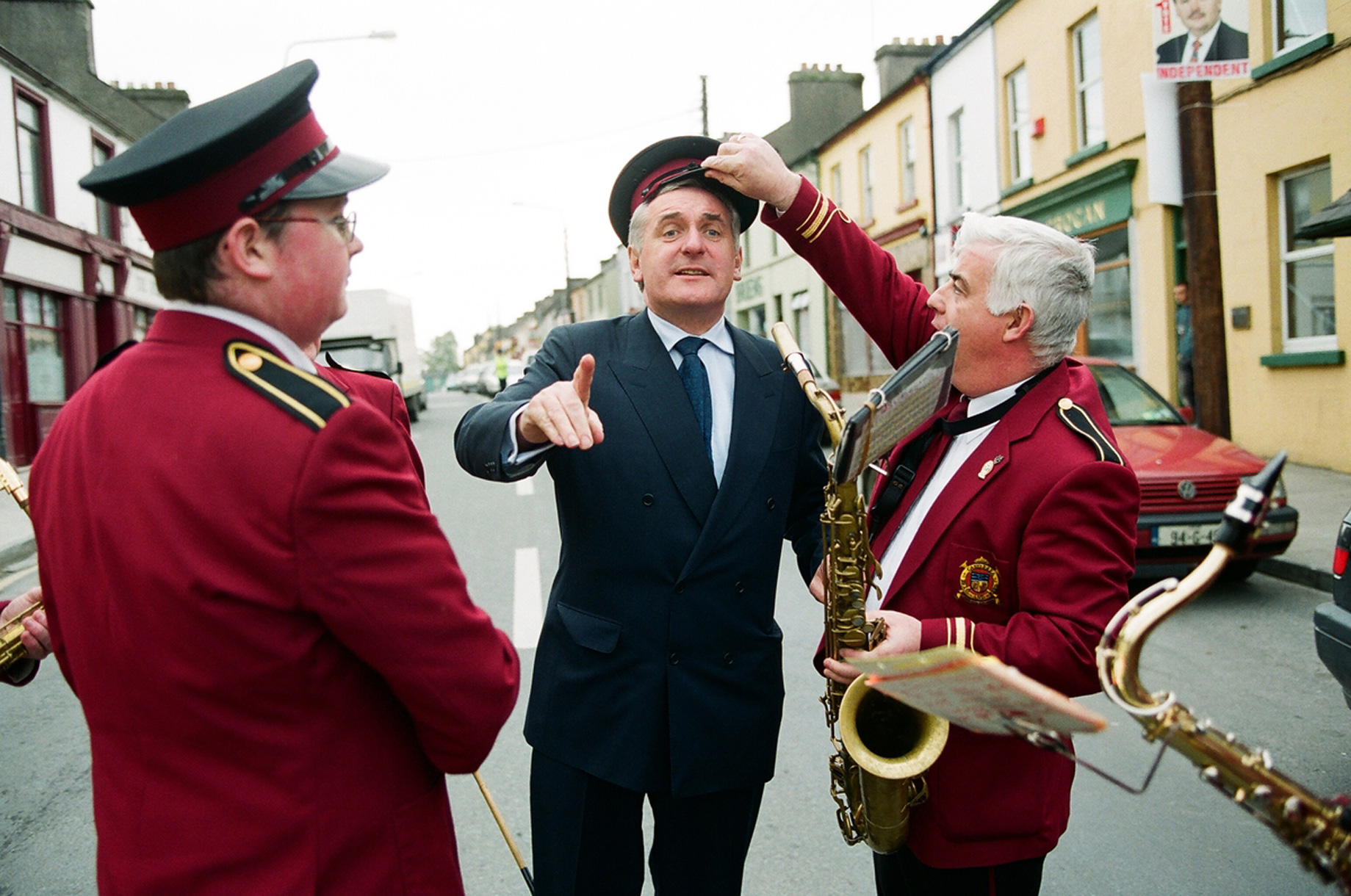
During the boom years of the Irish economy Fianna Fail surfed the wave of prosperity and popular appeal, emerging over successive elections as the country’s leading political party. Each ballot is preceded by an exhaustive nationwide campaign to capture voters, the party leader burning up the miles to engage with his followers and rally support. Babies are kissed, hands shook, promises made. In these moments Bertie Ahern, the Fianna Fail leader, was in his element. He had a natural rapport with what was often referred to as the plain people of Ireland, a connection that for a time translated into a winning streak at the polls. But beyond his hardened party faithful, the love wasn’t unconditional. This would prove the last of the good times before an economic crash transformed the political landscape and saw Ahern’s standing, and that of his party, plummet. Having been the premier force for generations, Ahern’s Fianna Fail were now in the pillory for poor governance, loose bank regulations and an unhealthy obsession with making a quick buck, their once-respected reputation in tatters.
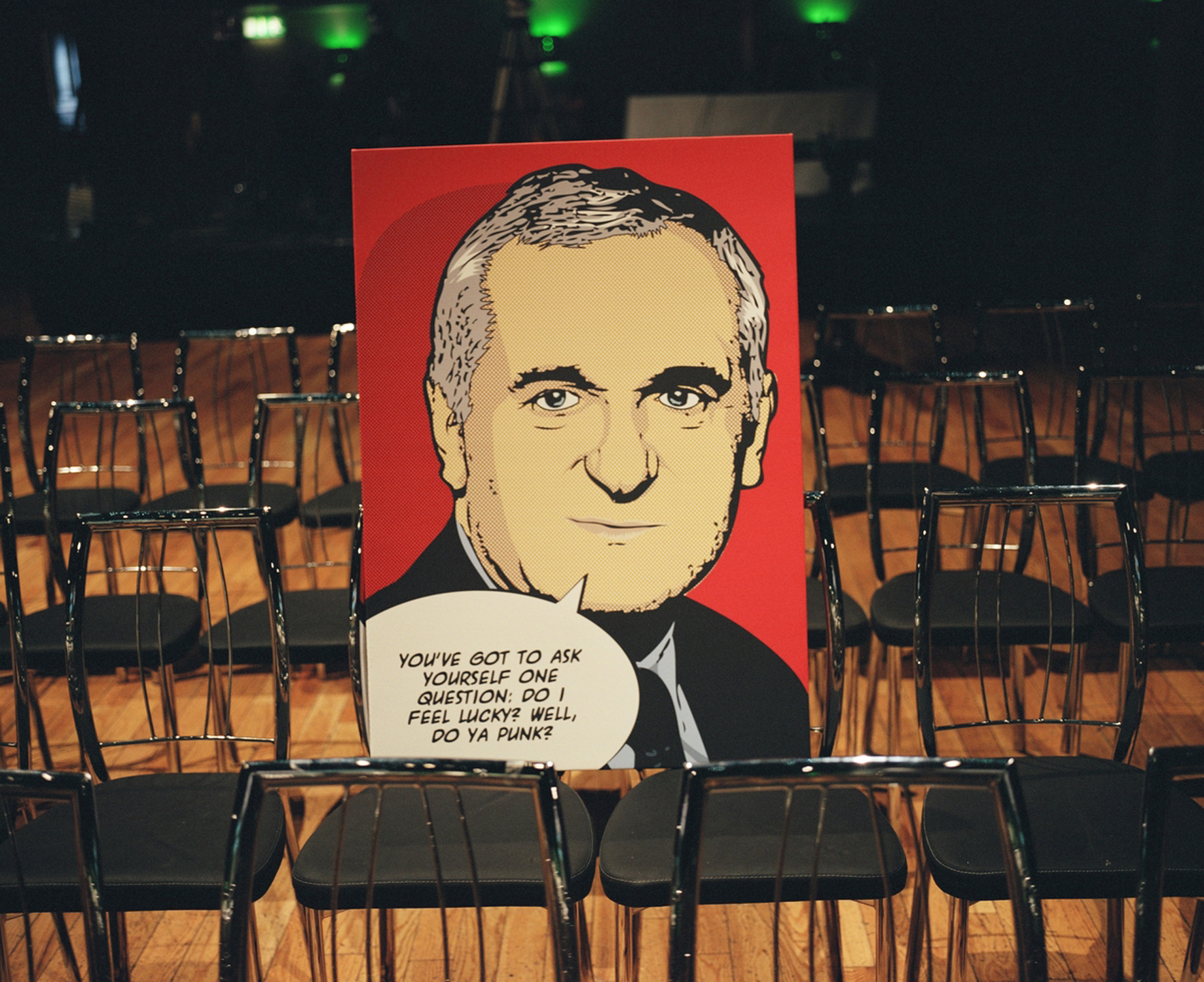
During the boom years of the Irish economy Fianna Fail surfed the wave of prosperity and popular appeal, emerging over successive elections as the country’s leading political party. Each ballot is preceded by an exhaustive nationwide campaign to capture voters, the party leader burning up the miles to engage with his followers and rally support. Babies are kissed, hands shook, promises made. In these moments Bertie Ahern, the Fianna Fail leader, was in his element. He had a natural rapport with what was often referred to as the plain people of Ireland, a connection that for a time translated into a winning streak at the polls. But beyond his hardened party faithful, the love wasn’t unconditional. This would prove the last of the good times before an economic crash transformed the political landscape and saw Ahern’s standing, and that of his party, plummet. Having been the premier force for generations, Ahern’s Fianna Fail were now in the pillory for poor governance, loose bank regulations and an unhealthy obsession with making a quick buck, their once-respected reputation in tatters.
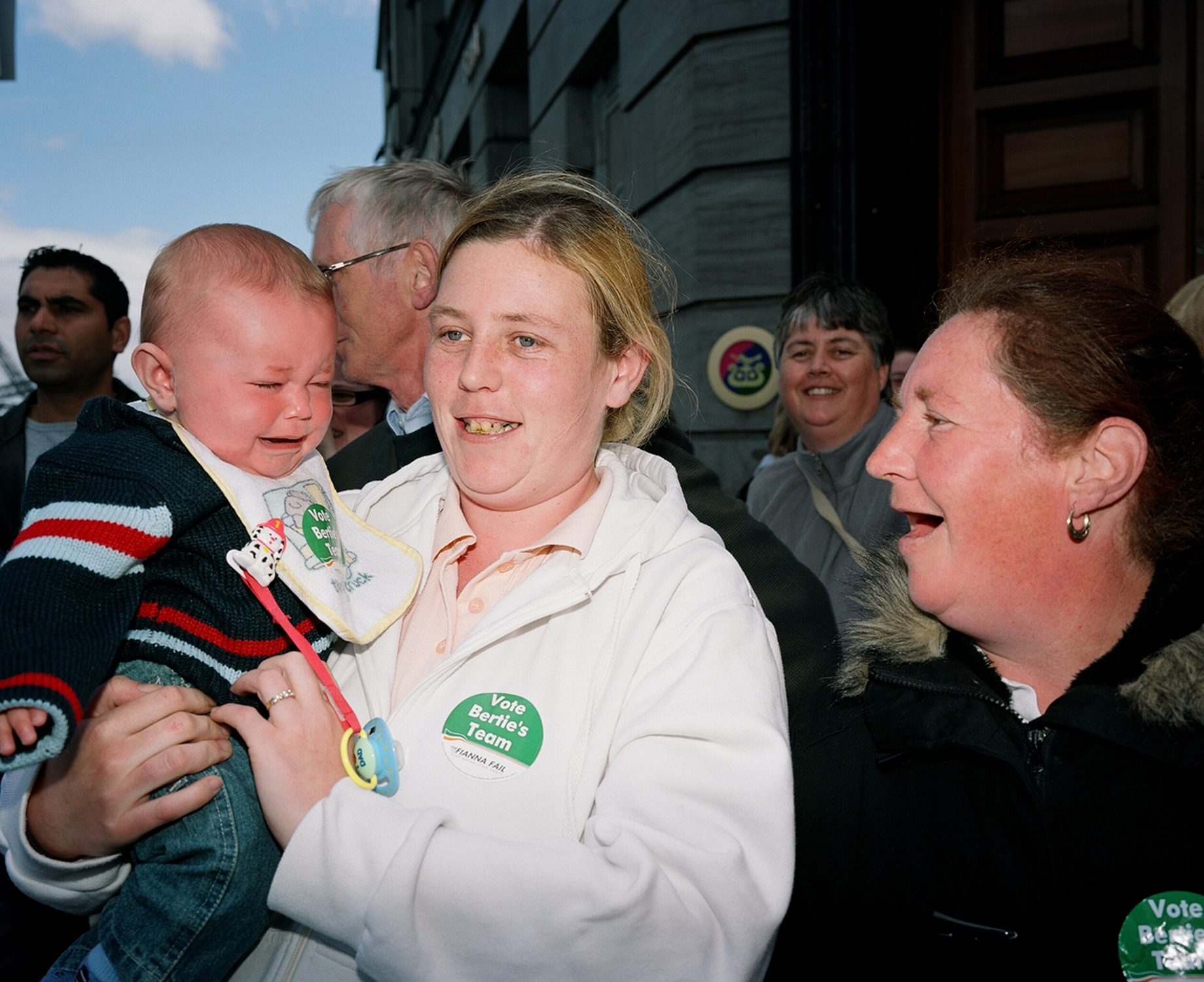
During the boom years of the Irish economy Fianna Fail surfed the wave of prosperity and popular appeal, emerging over successive elections as the country’s leading political party. Each ballot is preceded by an exhaustive nationwide campaign to capture voters, the party leader burning up the miles to engage with his followers and rally support. Babies are kissed, hands shook, promises made. In these moments Bertie Ahern, the Fianna Fail leader, was in his element. He had a natural rapport with what was often referred to as the plain people of Ireland, a connection that for a time translated into a winning streak at the polls. But beyond his hardened party faithful, the love wasn’t unconditional. This would prove the last of the good times before an economic crash transformed the political landscape and saw Ahern’s standing, and that of his party, plummet. Having been the premier force for generations, Ahern’s Fianna Fail were now in the pillory for poor governance, loose bank regulations and an unhealthy obsession with making a quick buck, their once-respected reputation in tatters.
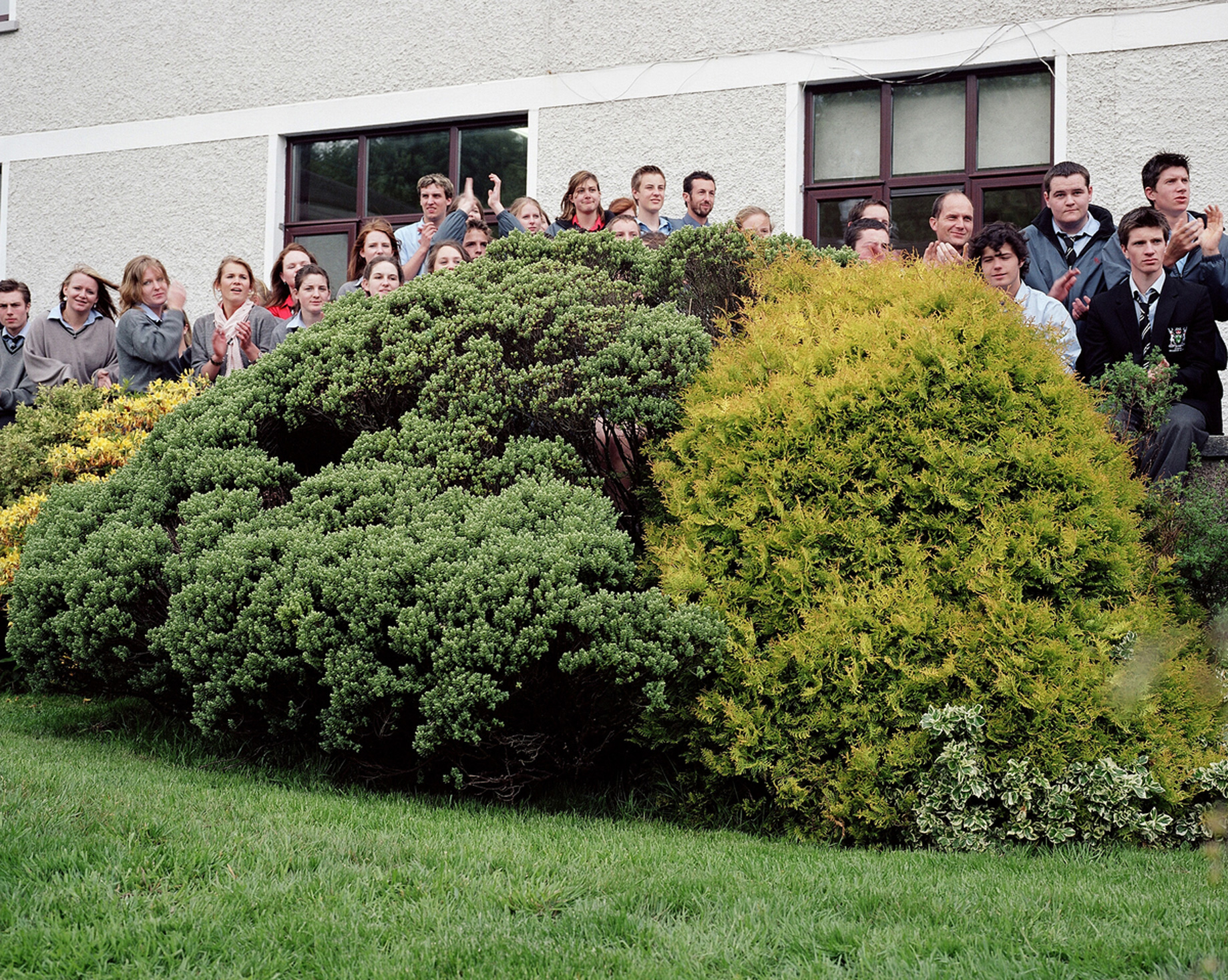
During the boom years of the Irish economy Fianna Fail surfed the wave of prosperity and popular appeal, emerging over successive elections as the country’s leading political party. Each ballot is preceded by an exhaustive nationwide campaign to capture voters, the party leader burning up the miles to engage with his followers and rally support. Babies are kissed, hands shook, promises made. In these moments Bertie Ahern, the Fianna Fail leader, was in his element. He had a natural rapport with what was often referred to as the plain people of Ireland, a connection that for a time translated into a winning streak at the polls. But beyond his hardened party faithful, the love wasn’t unconditional. This would prove the last of the good times before an economic crash transformed the political landscape and saw Ahern’s standing, and that of his party, plummet. Having been the premier force for generations, Ahern’s Fianna Fail were now in the pillory for poor governance, loose bank regulations and an unhealthy obsession with making a quick buck, their once-respected reputation in tatters.
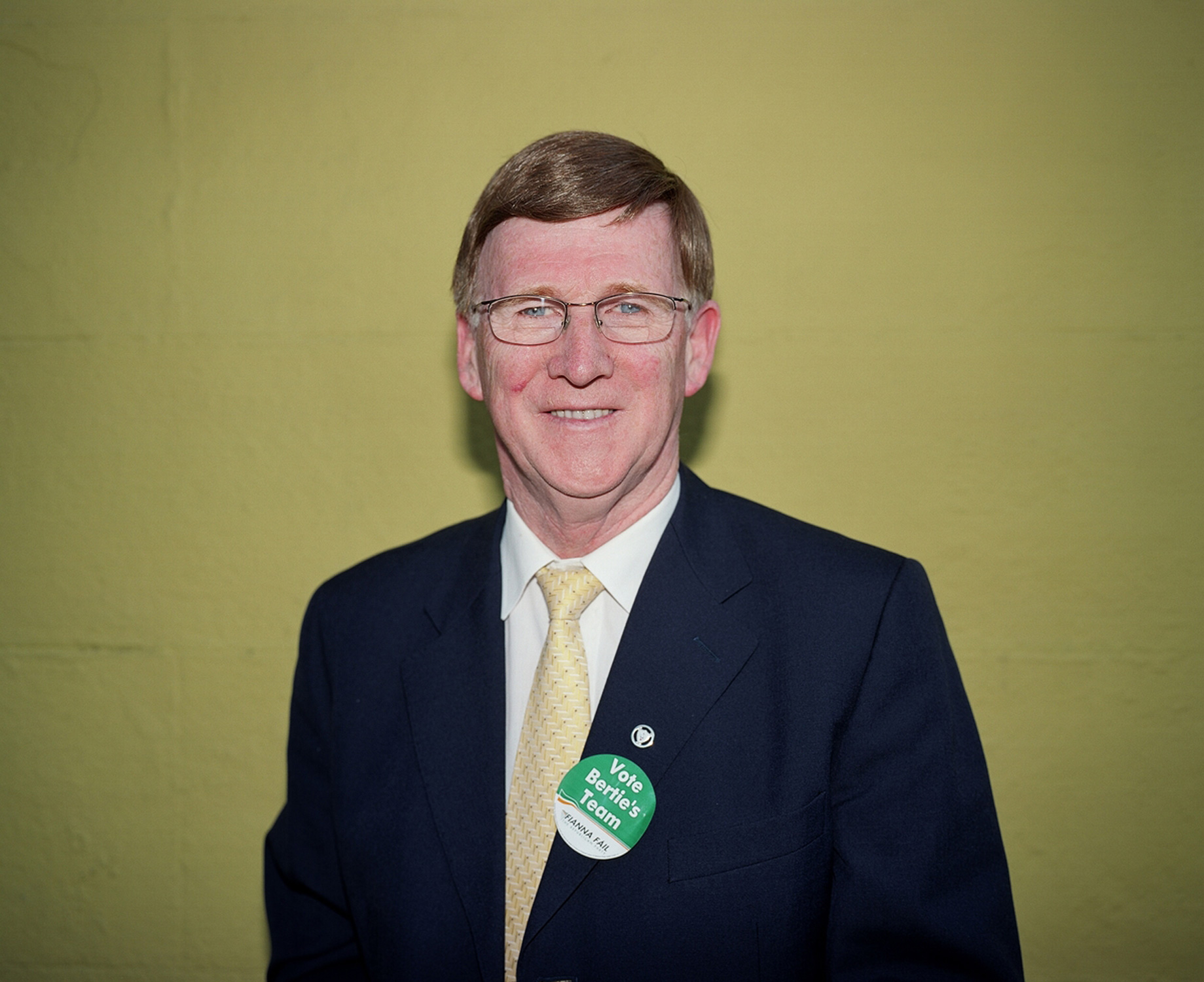
During the boom years of the Irish economy Fianna Fail surfed the wave of prosperity and popular appeal, emerging over successive elections as the country’s leading political party. Each ballot is preceded by an exhaustive nationwide campaign to capture voters, the party leader burning up the miles to engage with his followers and rally support. Babies are kissed, hands shook, promises made. In these moments Bertie Ahern, the Fianna Fail leader, was in his element. He had a natural rapport with what was often referred to as the plain people of Ireland, a connection that for a time translated into a winning streak at the polls. But beyond his hardened party faithful, the love wasn’t unconditional. This would prove the last of the good times before an economic crash transformed the political landscape and saw Ahern’s standing, and that of his party, plummet. Having been the premier force for generations, Ahern’s Fianna Fail were now in the pillory for poor governance, loose bank regulations and an unhealthy obsession with making a quick buck, their once-respected reputation in tatters.
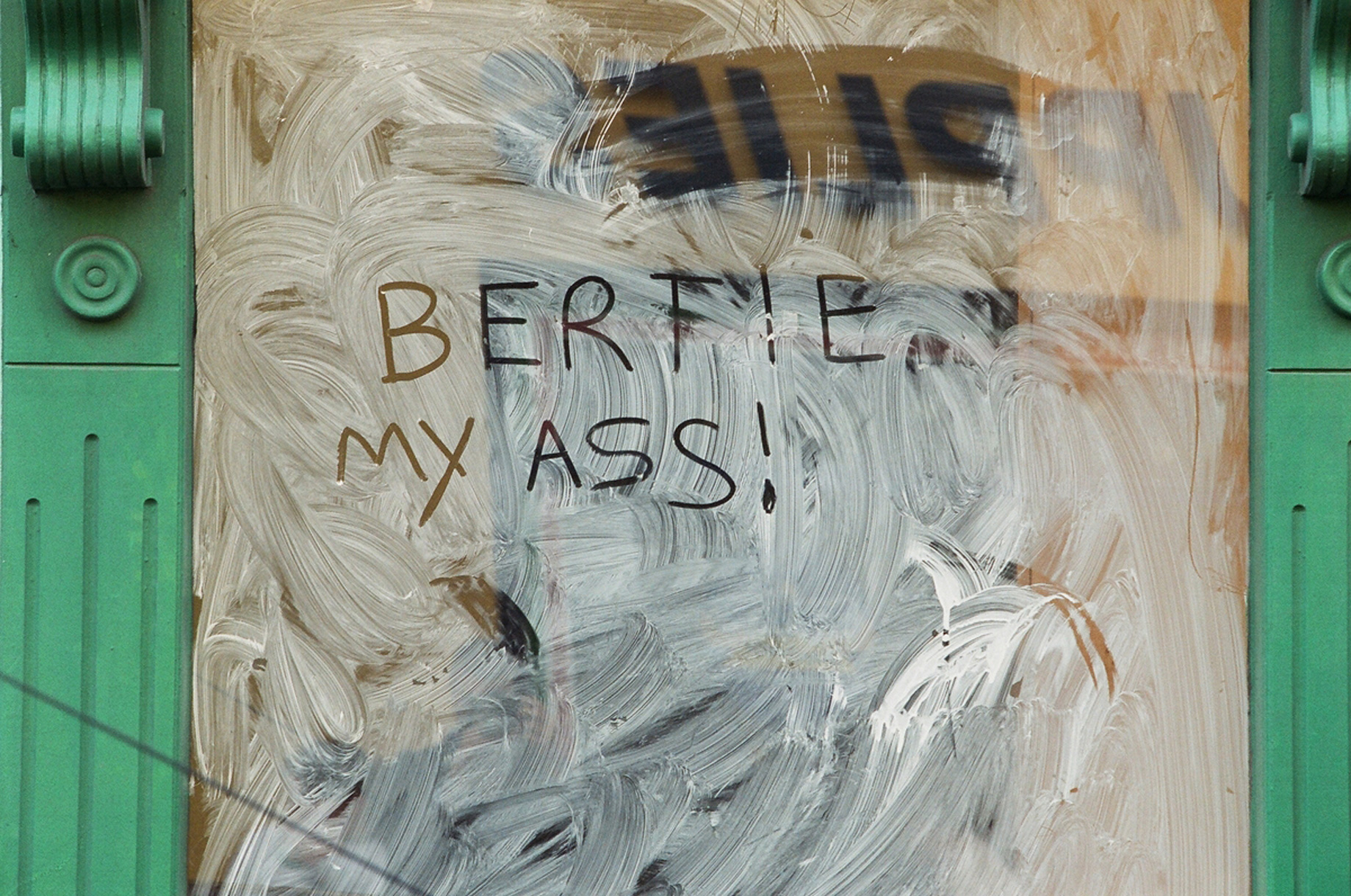
During the boom years of the Irish economy Fianna Fail surfed the wave of prosperity and popular appeal, emerging over successive elections as the country’s leading political party. Each ballot is preceded by an exhaustive nationwide campaign to capture voters, the party leader burning up the miles to engage with his followers and rally support. Babies are kissed, hands shook, promises made. In these moments Bertie Ahern, the Fianna Fail leader, was in his element. He had a natural rapport with what was often referred to as the plain people of Ireland, a connection that for a time translated into a winning streak at the polls. But beyond his hardened party faithful, the love wasn’t unconditional. This would prove the last of the good times before an economic crash transformed the political landscape and saw Ahern’s standing, and that of his party, plummet. Having been the premier force for generations, Ahern’s Fianna Fail were now in the pillory for poor governance, loose bank regulations and an unhealthy obsession with making a quick buck, their once-respected reputation in tatters.
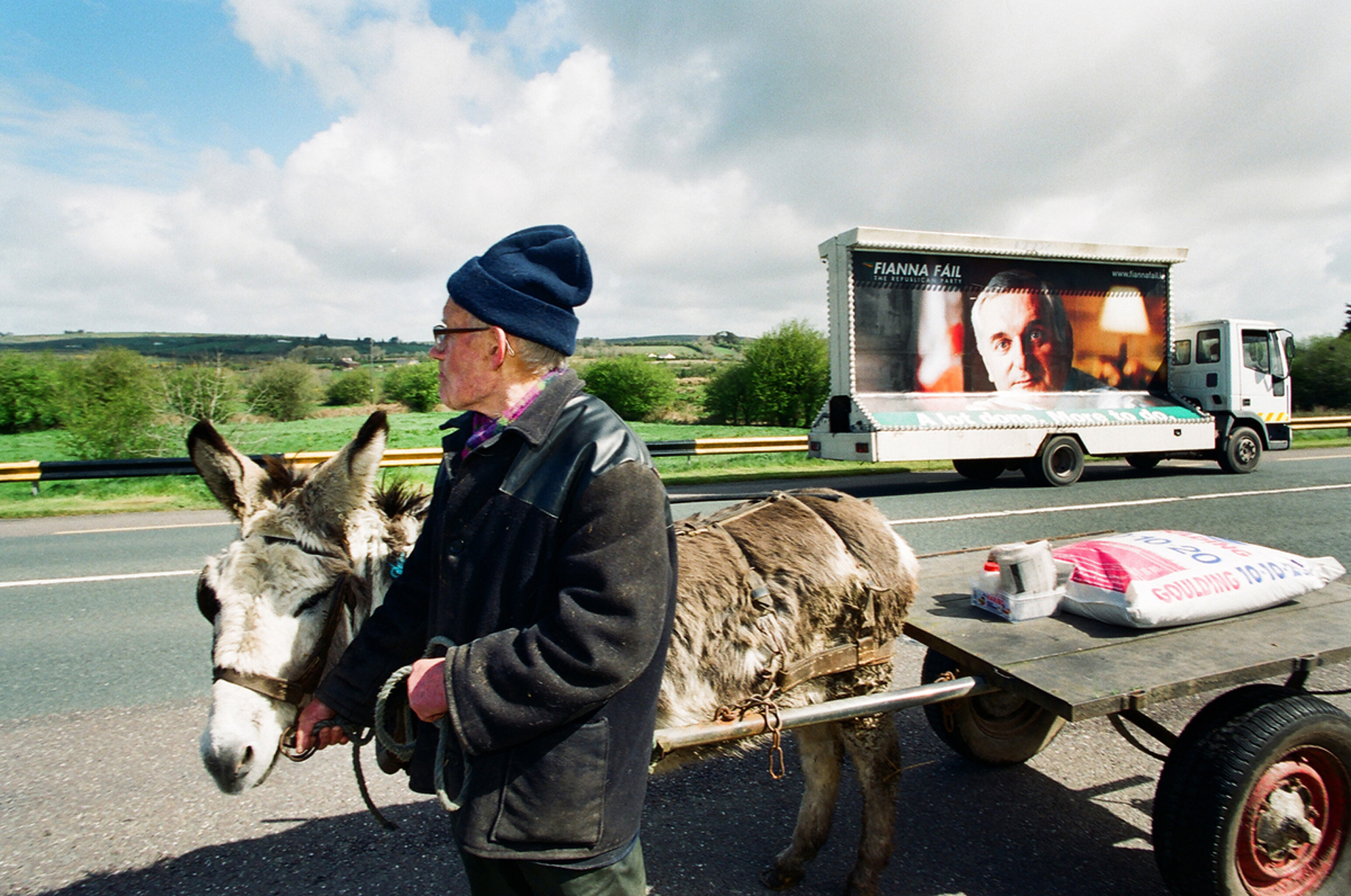
During the boom years of the Irish economy Fianna Fail surfed the wave of prosperity and popular appeal, emerging over successive elections as the country’s leading political party. Each ballot is preceded by an exhaustive nationwide campaign to capture voters, the party leader burning up the miles to engage with his followers and rally support. Babies are kissed, hands shook, promises made. In these moments Bertie Ahern, the Fianna Fail leader, was in his element. He had a natural rapport with what was often referred to as the plain people of Ireland, a connection that for a time translated into a winning streak at the polls. But beyond his hardened party faithful, the love wasn’t unconditional. This would prove the last of the good times before an economic crash transformed the political landscape and saw Ahern’s standing, and that of his party, plummet. Having been the premier force for generations, Ahern’s Fianna Fail were now in the pillory for poor governance, loose bank regulations and an unhealthy obsession with making a quick buck, their once-respected reputation in tatters.
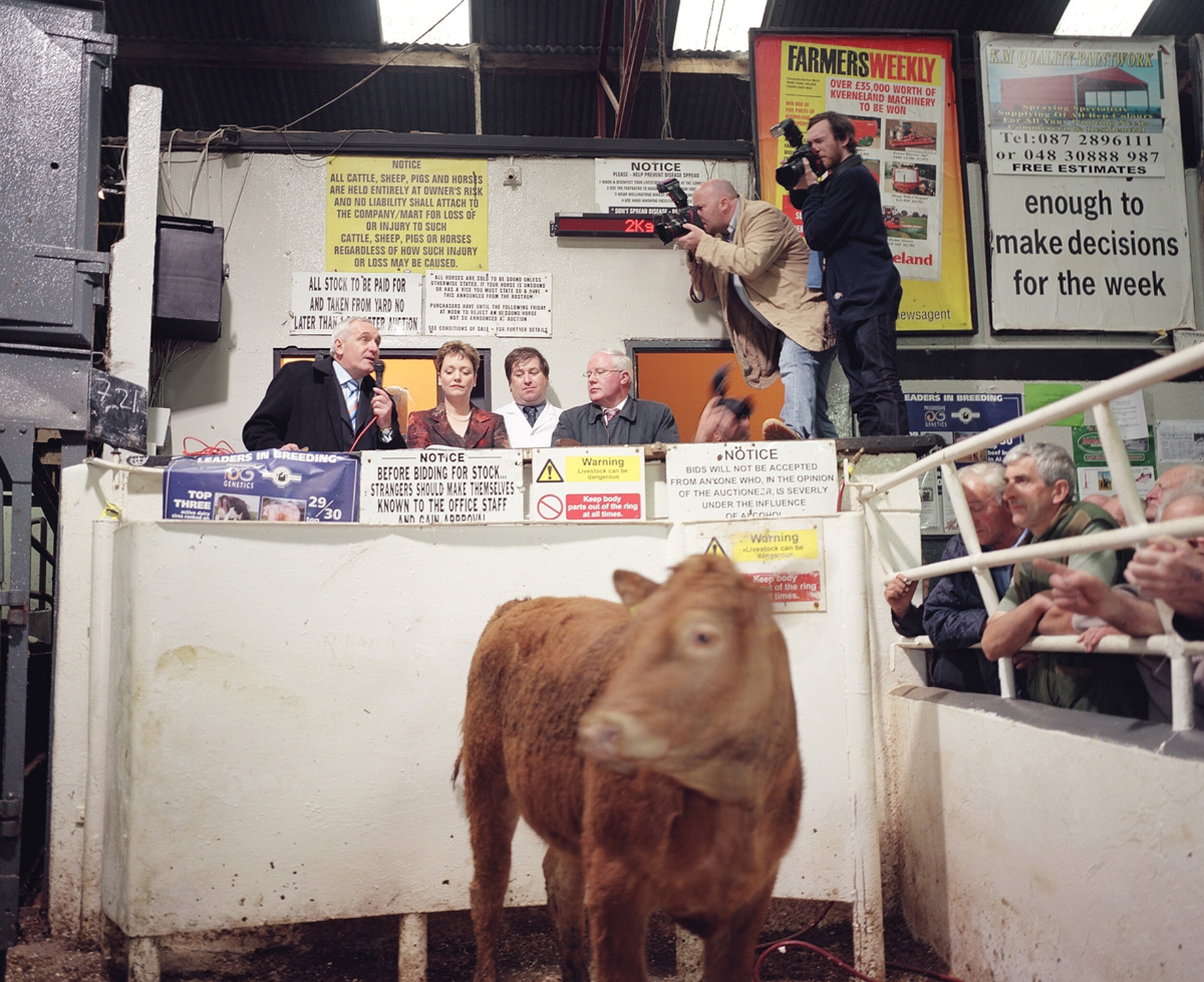
During the boom years of the Irish economy Fianna Fail surfed the wave of prosperity and popular appeal, emerging over successive elections as the country’s leading political party. Each ballot is preceded by an exhaustive nationwide campaign to capture voters, the party leader burning up the miles to engage with his followers and rally support. Babies are kissed, hands shook, promises made. In these moments Bertie Ahern, the Fianna Fail leader, was in his element. He had a natural rapport with what was often referred to as the plain people of Ireland, a connection that for a time translated into a winning streak at the polls. But beyond his hardened party faithful, the love wasn’t unconditional. This would prove the last of the good times before an economic crash transformed the political landscape and saw Ahern’s standing, and that of his party, plummet. Having been the premier force for generations, Ahern’s Fianna Fail were now in the pillory for poor governance, loose bank regulations and an unhealthy obsession with making a quick buck, their once-respected reputation in tatters.

During the boom years of the Irish economy Fianna Fail surfed the wave of prosperity and popular appeal, emerging over successive elections as the country’s leading political party. Each ballot is preceded by an exhaustive nationwide campaign to capture voters, the party leader burning up the miles to engage with his followers and rally support. Babies are kissed, hands shook, promises made. In these moments Bertie Ahern, the Fianna Fail leader, was in his element. He had a natural rapport with what was often referred to as the plain people of Ireland, a connection that for a time translated into a winning streak at the polls. But beyond his hardened party faithful, the love wasn’t unconditional. This would prove the last of the good times before an economic crash transformed the political landscape and saw Ahern’s standing, and that of his party, plummet. Having been the premier force for generations, Ahern’s Fianna Fail were now in the pillory for poor governance, loose bank regulations and an unhealthy obsession with making a quick buck, their once-respected reputation in tatters.
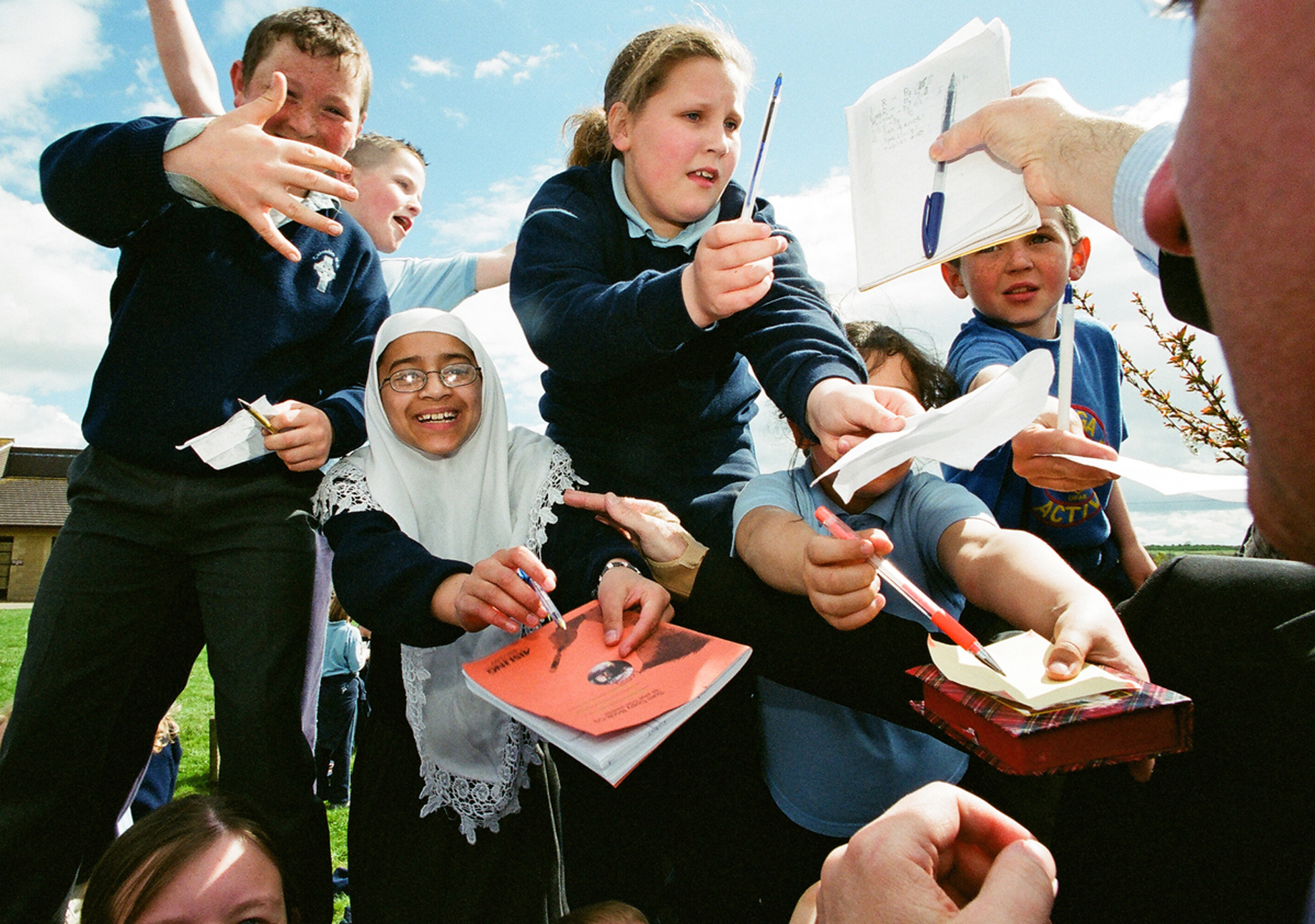
During the boom years of the Irish economy Fianna Fail surfed the wave of prosperity and popular appeal, emerging over successive elections as the country’s leading political party. Each ballot is preceded by an exhaustive nationwide campaign to capture voters, the party leader burning up the miles to engage with his followers and rally support. Babies are kissed, hands shook, promises made. In these moments Bertie Ahern, the Fianna Fail leader, was in his element. He had a natural rapport with what was often referred to as the plain people of Ireland, a connection that for a time translated into a winning streak at the polls. But beyond his hardened party faithful, the love wasn’t unconditional. This would prove the last of the good times before an economic crash transformed the political landscape and saw Ahern’s standing, and that of his party, plummet. Having been the premier force for generations, Ahern’s Fianna Fail were now in the pillory for poor governance, loose bank regulations and an unhealthy obsession with making a quick buck, their once-respected reputation in tatters.

During the boom years of the Irish economy Fianna Fail surfed the wave of prosperity and popular appeal, emerging over successive elections as the country’s leading political party. Each ballot is preceded by an exhaustive nationwide campaign to capture voters, the party leader burning up the miles to engage with his followers and rally support. Babies are kissed, hands shook, promises made. In these moments Bertie Ahern, the Fianna Fail leader, was in his element. He had a natural rapport with what was often referred to as the plain people of Ireland, a connection that for a time translated into a winning streak at the polls. But beyond his hardened party faithful, the love wasn’t unconditional. This would prove the last of the good times before an economic crash transformed the political landscape and saw Ahern’s standing, and that of his party, plummet. Having been the premier force for generations, Ahern’s Fianna Fail were now in the pillory for poor governance, loose bank regulations and an unhealthy obsession with making a quick buck, their once-respected reputation in tatters.
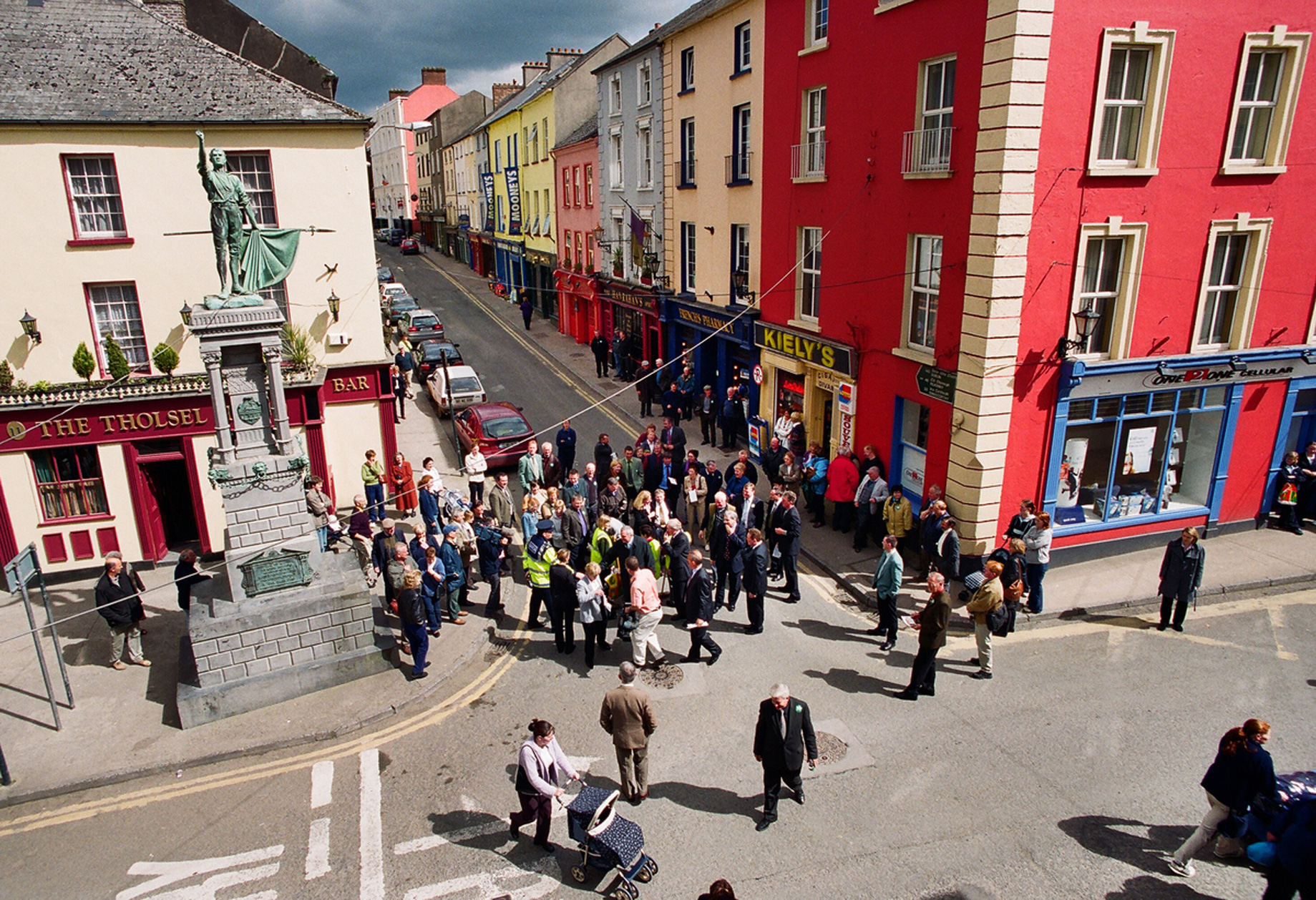
During the boom years of the Irish economy Fianna Fail surfed the wave of prosperity and popular appeal, emerging over successive elections as the country’s leading political party. Each ballot is preceded by an exhaustive nationwide campaign to capture voters, the party leader burning up the miles to engage with his followers and rally support. Babies are kissed, hands shook, promises made. In these moments Bertie Ahern, the Fianna Fail leader, was in his element. He had a natural rapport with what was often referred to as the plain people of Ireland, a connection that for a time translated into a winning streak at the polls. But beyond his hardened party faithful, the love wasn’t unconditional. This would prove the last of the good times before an economic crash transformed the political landscape and saw Ahern’s standing, and that of his party, plummet. Having been the premier force for generations, Ahern’s Fianna Fail were now in the pillory for poor governance, loose bank regulations and an unhealthy obsession with making a quick buck, their once-respected reputation in tatters.
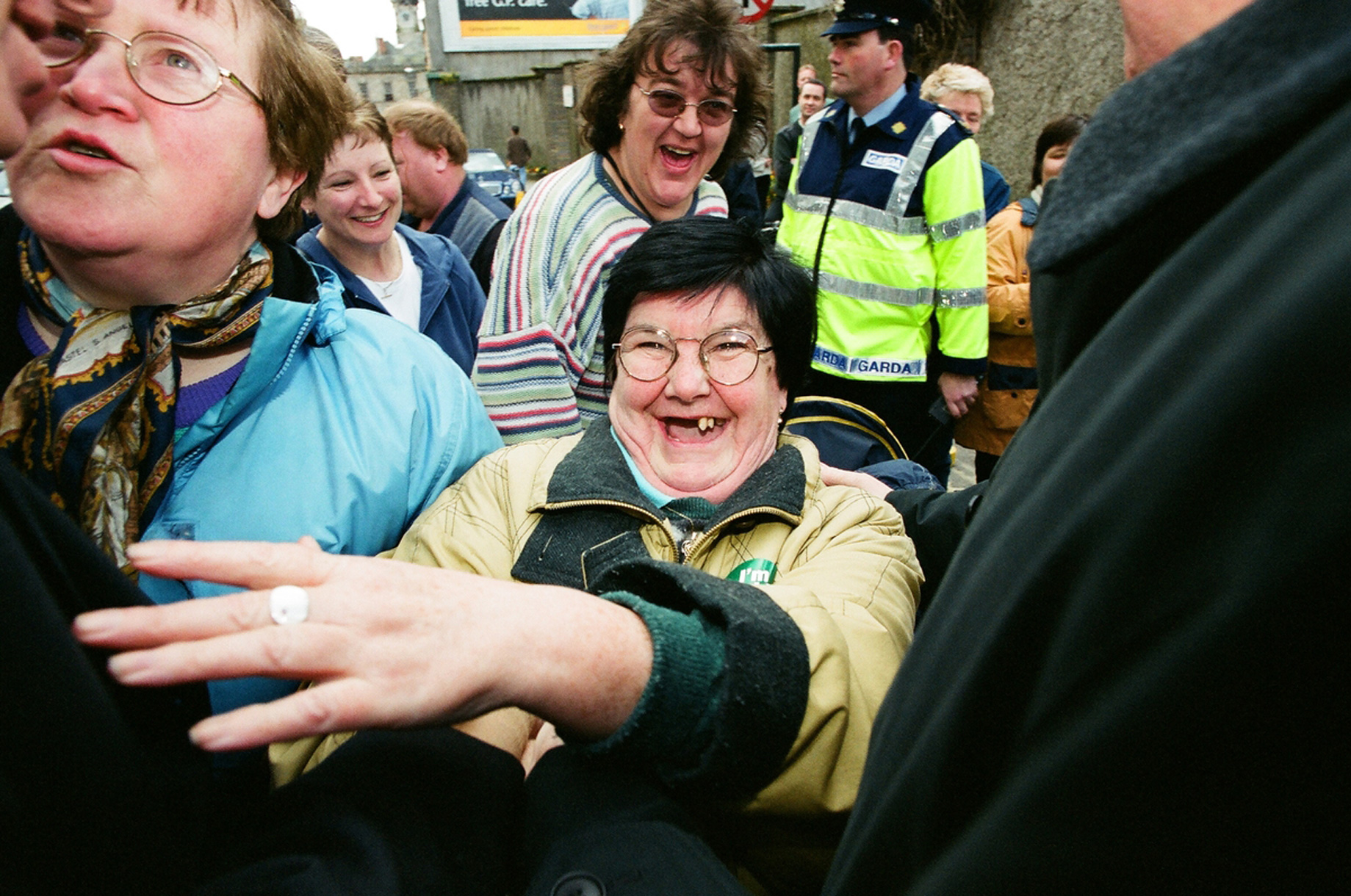
During the boom years of the Irish economy Fianna Fail surfed the wave of prosperity and popular appeal, emerging over successive elections as the country’s leading political party. Each ballot is preceded by an exhaustive nationwide campaign to capture voters, the party leader burning up the miles to engage with his followers and rally support. Babies are kissed, hands shook, promises made. In these moments Bertie Ahern, the Fianna Fail leader, was in his element. He had a natural rapport with what was often referred to as the plain people of Ireland, a connection that for a time translated into a winning streak at the polls. But beyond his hardened party faithful, the love wasn’t unconditional. This would prove the last of the good times before an economic crash transformed the political landscape and saw Ahern’s standing, and that of his party, plummet. Having been the premier force for generations, Ahern’s Fianna Fail were now in the pillory for poor governance, loose bank regulations and an unhealthy obsession with making a quick buck, their once-respected reputation in tatters.

During the boom years of the Irish economy Fianna Fail surfed the wave of prosperity and popular appeal, emerging over successive elections as the country’s leading political party. Each ballot is preceded by an exhaustive nationwide campaign to capture voters, the party leader burning up the miles to engage with his followers and rally support. Babies are kissed, hands shook, promises made. In these moments Bertie Ahern, the Fianna Fail leader, was in his element. He had a natural rapport with what was often referred to as the plain people of Ireland, a connection that for a time translated into a winning streak at the polls. But beyond his hardened party faithful, the love wasn’t unconditional. This would prove the last of the good times before an economic crash transformed the political landscape and saw Ahern’s standing, and that of his party, plummet. Having been the premier force for generations, Ahern’s Fianna Fail were now in the pillory for poor governance, loose bank regulations and an unhealthy obsession with making a quick buck, their once-respected reputation in tatters.
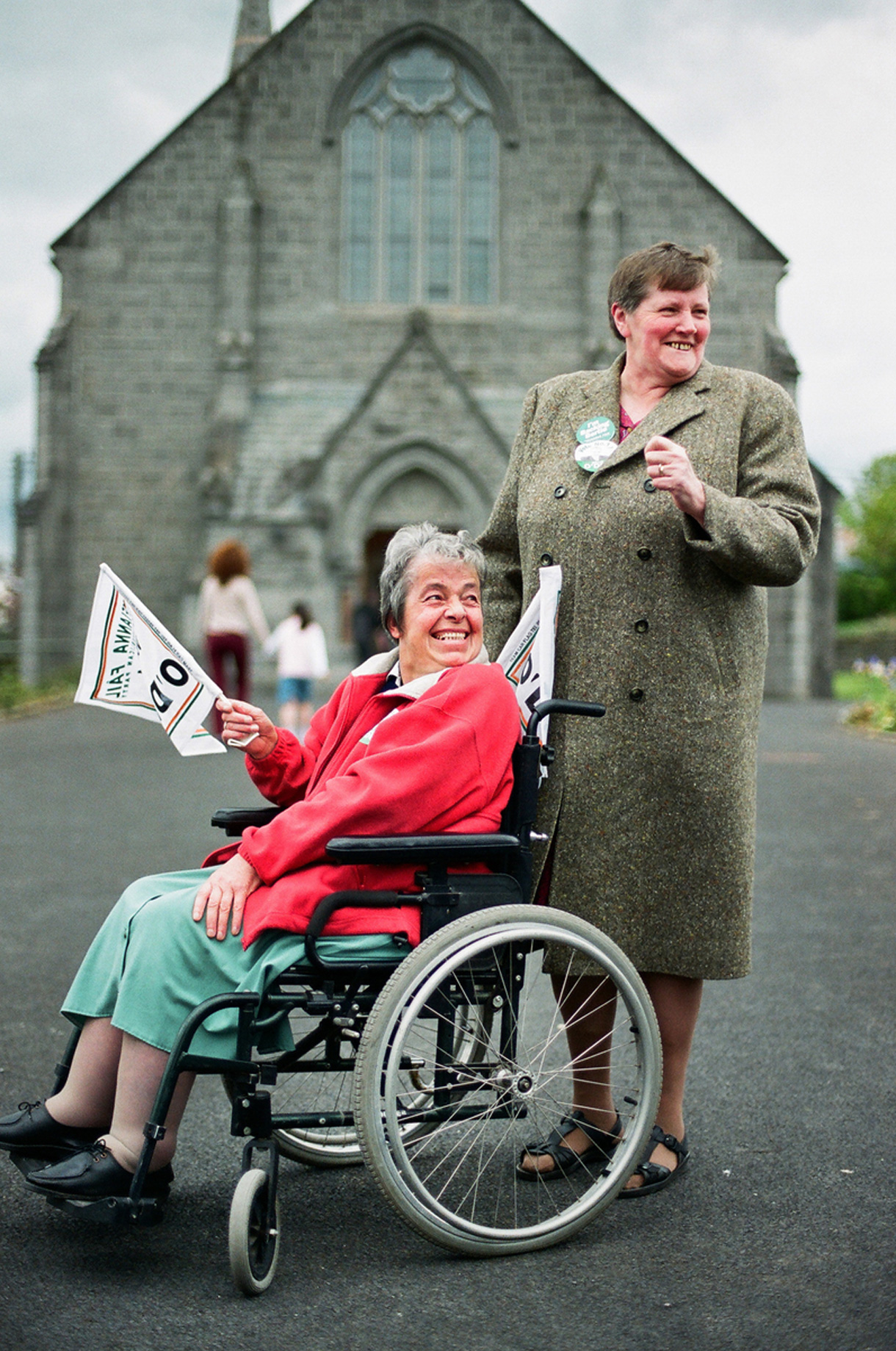
During the boom years of the Irish economy Fianna Fail surfed the wave of prosperity and popular appeal, emerging over successive elections as the country’s leading political party. Each ballot is preceded by an exhaustive nationwide campaign to capture voters, the party leader burning up the miles to engage with his followers and rally support. Babies are kissed, hands shook, promises made. In these moments Bertie Ahern, the Fianna Fail leader, was in his element. He had a natural rapport with what was often referred to as the plain people of Ireland, a connection that for a time translated into a winning streak at the polls. But beyond his hardened party faithful, the love wasn’t unconditional. This would prove the last of the good times before an economic crash transformed the political landscape and saw Ahern’s standing, and that of his party, plummet. Having been the premier force for generations, Ahern’s Fianna Fail were now in the pillory for poor governance, loose bank regulations and an unhealthy obsession with making a quick buck, their once-respected reputation in tatters.
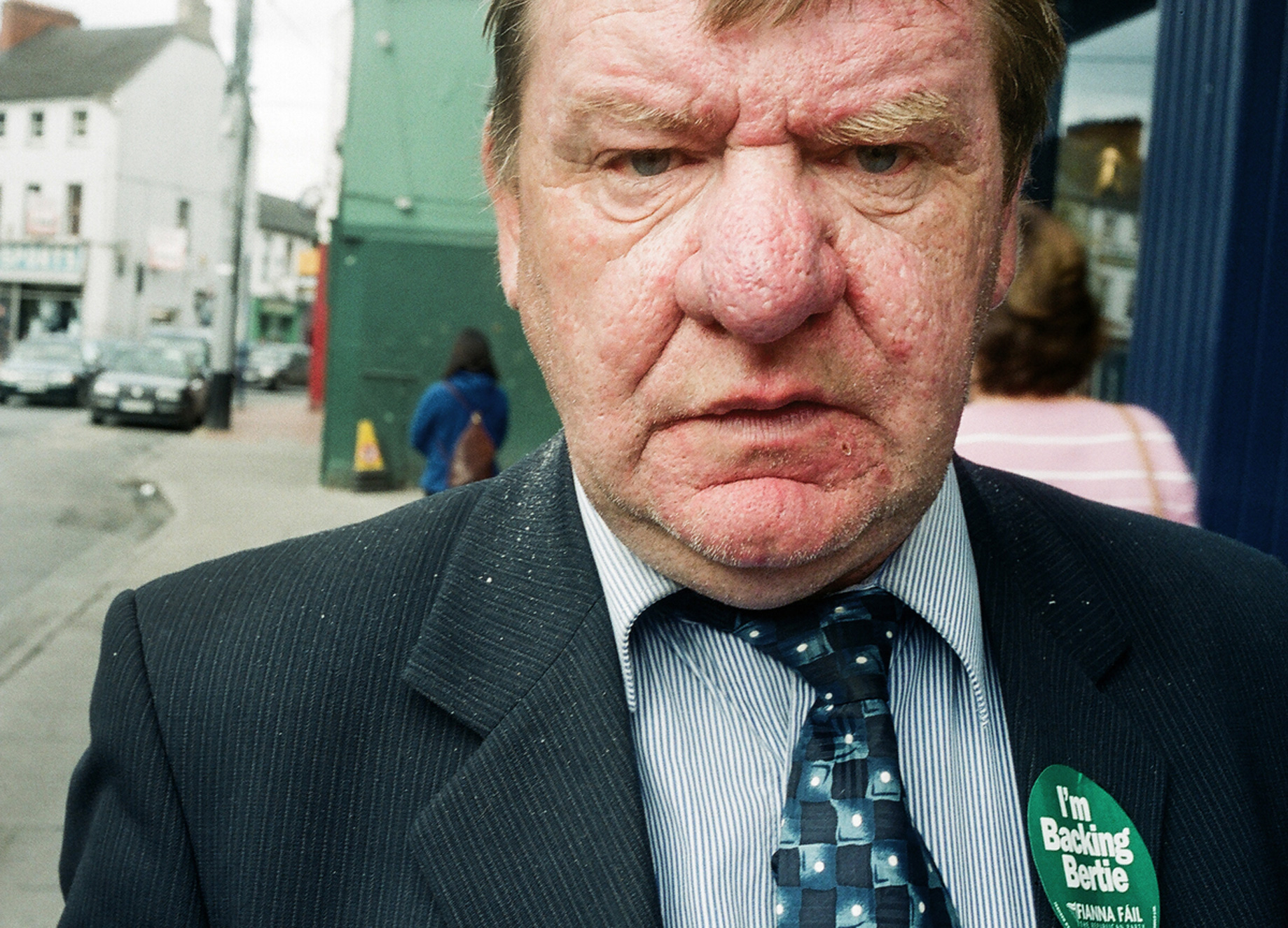
During the boom years of the Irish economy Fianna Fail surfed the wave of prosperity and popular appeal, emerging over successive elections as the country’s leading political party. Each ballot is preceded by an exhaustive nationwide campaign to capture voters, the party leader burning up the miles to engage with his followers and rally support. Babies are kissed, hands shook, promises made. In these moments Bertie Ahern, the Fianna Fail leader, was in his element. He had a natural rapport with what was often referred to as the plain people of Ireland, a connection that for a time translated into a winning streak at the polls. But beyond his hardened party faithful, the love wasn’t unconditional. This would prove the last of the good times before an economic crash transformed the political landscape and saw Ahern’s standing, and that of his party, plummet. Having been the premier force for generations, Ahern’s Fianna Fail were now in the pillory for poor governance, loose bank regulations and an unhealthy obsession with making a quick buck, their once-respected reputation in tatters.
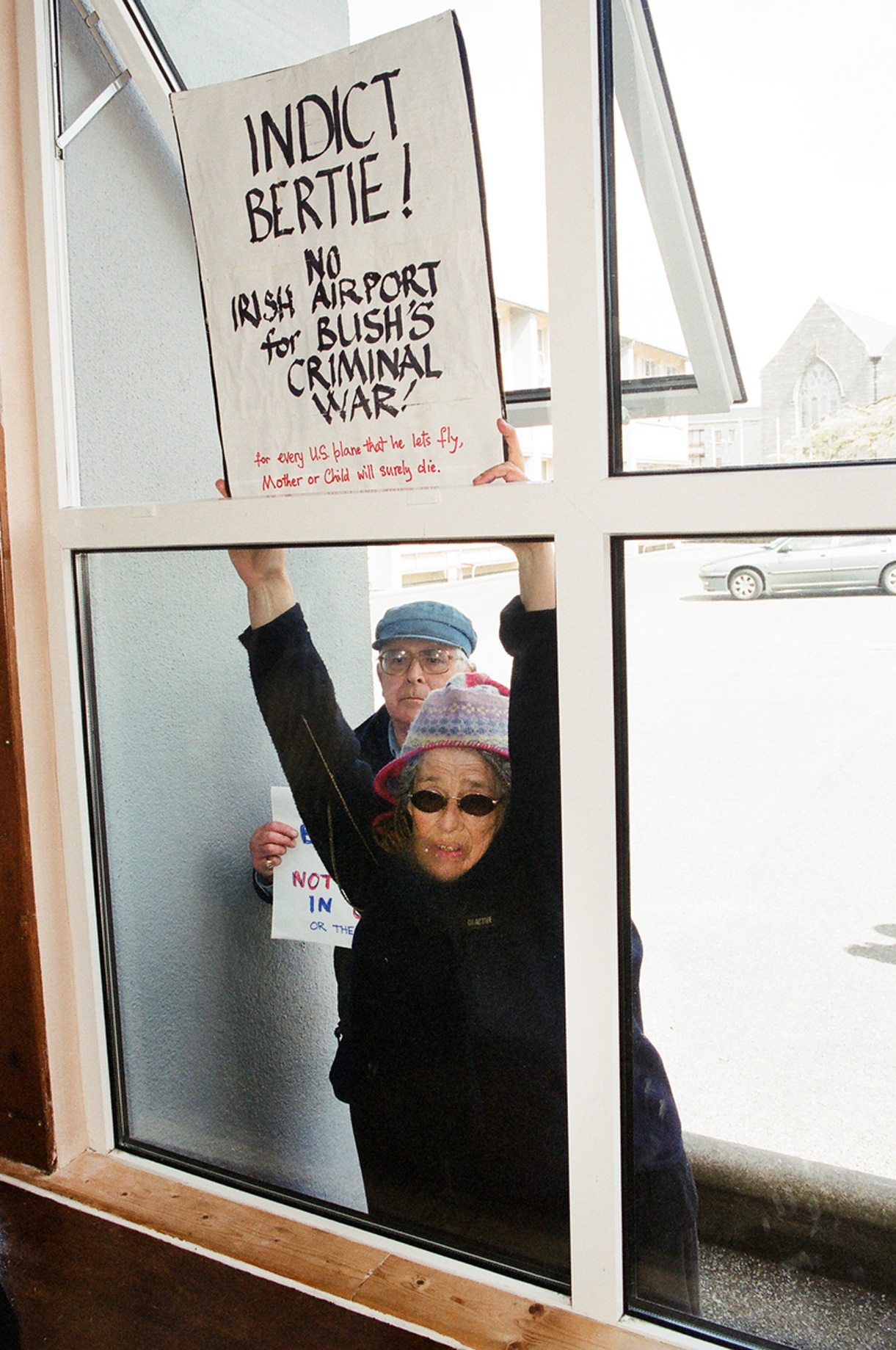
During the boom years of the Irish economy Fianna Fail surfed the wave of prosperity and popular appeal, emerging over successive elections as the country’s leading political party. Each ballot is preceded by an exhaustive nationwide campaign to capture voters, the party leader burning up the miles to engage with his followers and rally support. Babies are kissed, hands shook, promises made. In these moments Bertie Ahern, the Fianna Fail leader, was in his element. He had a natural rapport with what was often referred to as the plain people of Ireland, a connection that for a time translated into a winning streak at the polls. But beyond his hardened party faithful, the love wasn’t unconditional. This would prove the last of the good times before an economic crash transformed the political landscape and saw Ahern’s standing, and that of his party, plummet. Having been the premier force for generations, Ahern’s Fianna Fail were now in the pillory for poor governance, loose bank regulations and an unhealthy obsession with making a quick buck, their once-respected reputation in tatters.
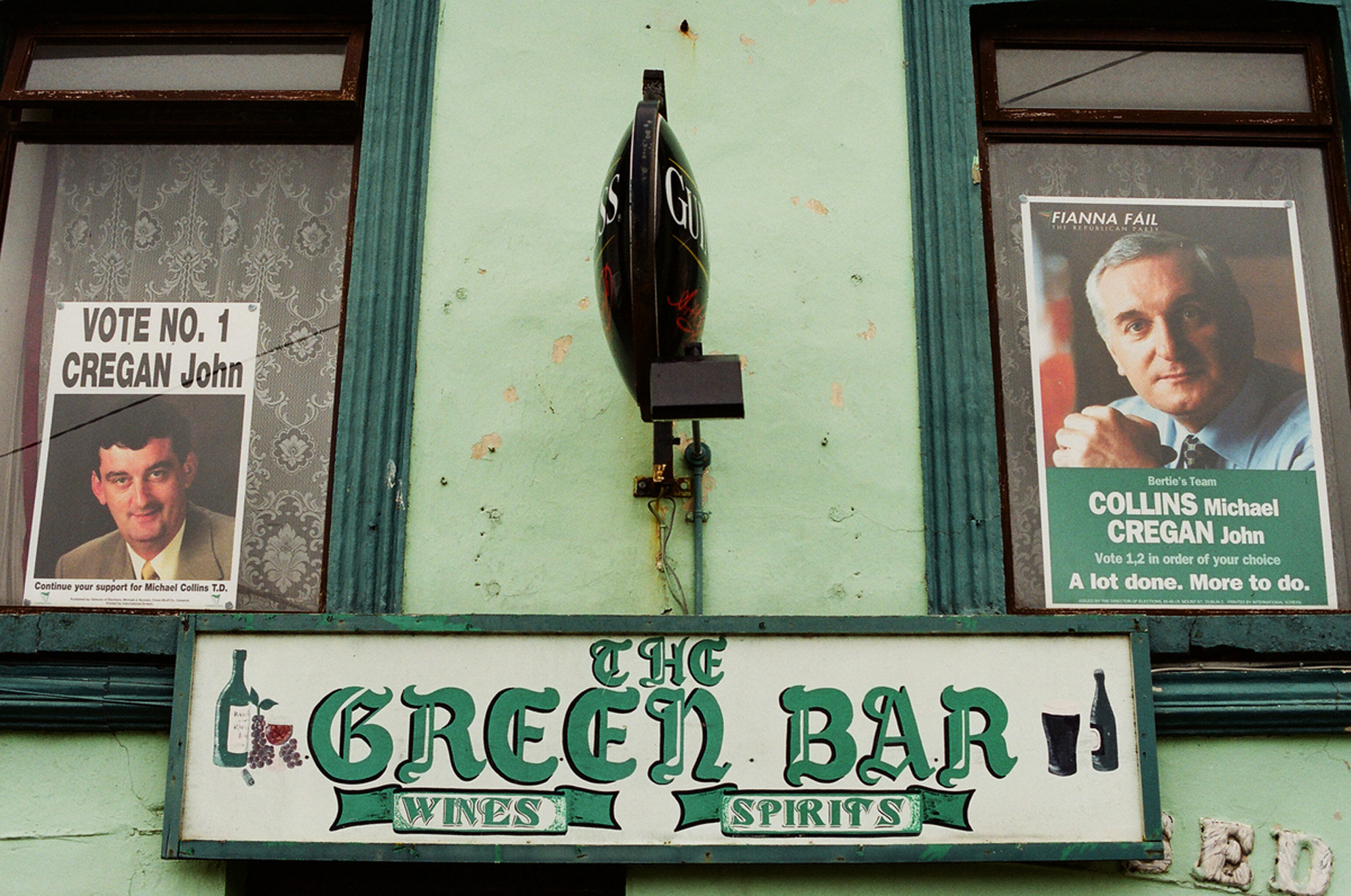
During the boom years of the Irish economy Fianna Fail surfed the wave of prosperity and popular appeal, emerging over successive elections as the country’s leading political party. Each ballot is preceded by an exhaustive nationwide campaign to capture voters, the party leader burning up the miles to engage with his followers and rally support. Babies are kissed, hands shook, promises made. In these moments Bertie Ahern, the Fianna Fail leader, was in his element. He had a natural rapport with what was often referred to as the plain people of Ireland, a connection that for a time translated into a winning streak at the polls. But beyond his hardened party faithful, the love wasn’t unconditional. This would prove the last of the good times before an economic crash transformed the political landscape and saw Ahern’s standing, and that of his party, plummet. Having been the premier force for generations, Ahern’s Fianna Fail were now in the pillory for poor governance, loose bank regulations and an unhealthy obsession with making a quick buck, their once-respected reputation in tatters.
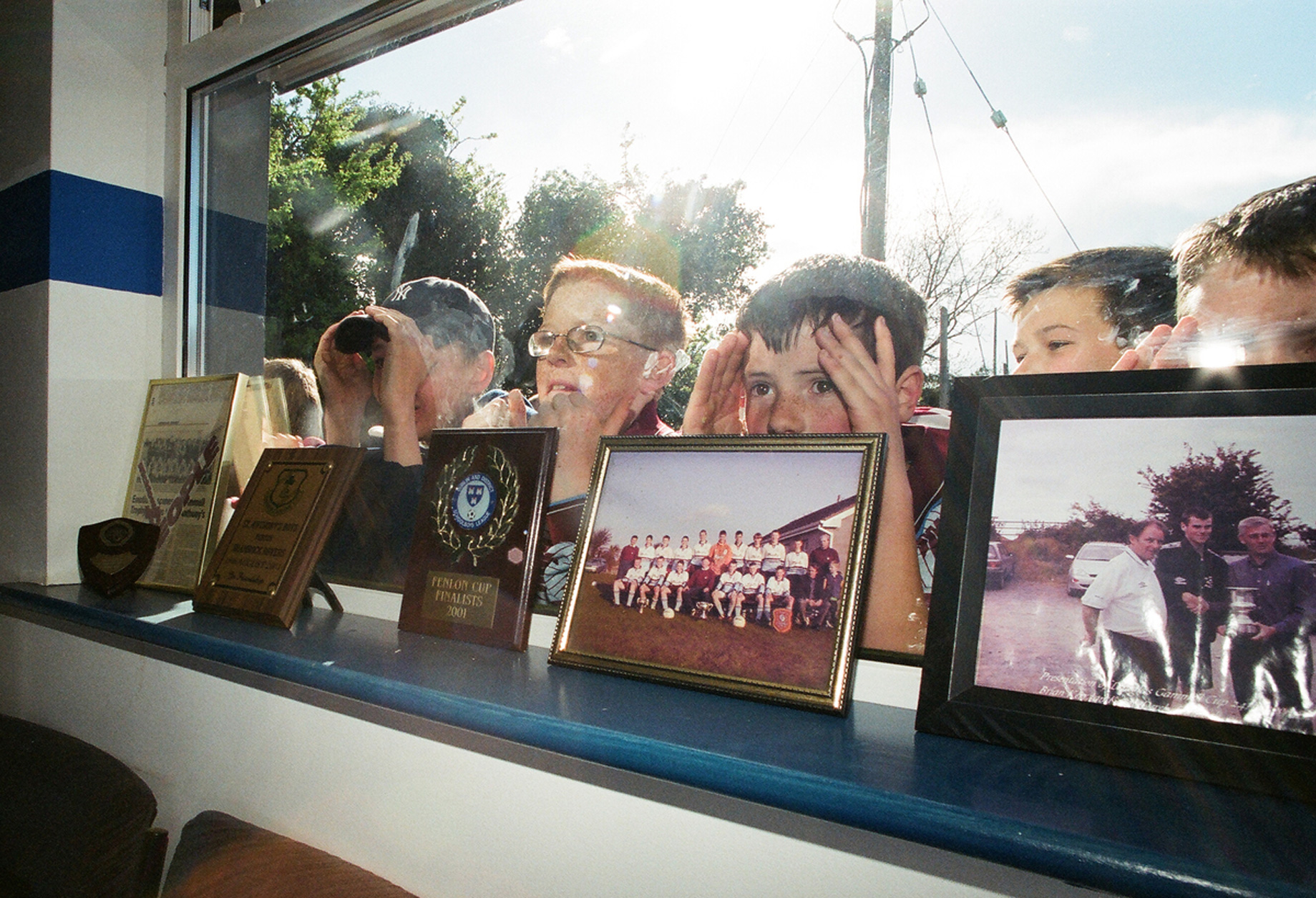
During the boom years of the Irish economy Fianna Fail surfed the wave of prosperity and popular appeal, emerging over successive elections as the country’s leading political party. Each ballot is preceded by an exhaustive nationwide campaign to capture voters, the party leader burning up the miles to engage with his followers and rally support. Babies are kissed, hands shook, promises made. In these moments Bertie Ahern, the Fianna Fail leader, was in his element. He had a natural rapport with what was often referred to as the plain people of Ireland, a connection that for a time translated into a winning streak at the polls. But beyond his hardened party faithful, the love wasn’t unconditional. This would prove the last of the good times before an economic crash transformed the political landscape and saw Ahern’s standing, and that of his party, plummet. Having been the premier force for generations, Ahern’s Fianna Fail were now in the pillory for poor governance, loose bank regulations and an unhealthy obsession with making a quick buck, their once-respected reputation in tatters.

During the boom years of the Irish economy Fianna Fail surfed the wave of prosperity and popular appeal, emerging over successive elections as the country’s leading political party. Each ballot is preceded by an exhaustive nationwide campaign to capture voters, the party leader burning up the miles to engage with his followers and rally support. Babies are kissed, hands shook, promises made. In these moments Bertie Ahern, the Fianna Fail leader, was in his element. He had a natural rapport with what was often referred to as the plain people of Ireland, a connection that for a time translated into a winning streak at the polls. But beyond his hardened party faithful, the love wasn’t unconditional. This would prove the last of the good times before an economic crash transformed the political landscape and saw Ahern’s standing, and that of his party, plummet. Having been the premier force for generations, Ahern’s Fianna Fail were now in the pillory for poor governance, loose bank regulations and an unhealthy obsession with making a quick buck, their once-respected reputation in tatters.
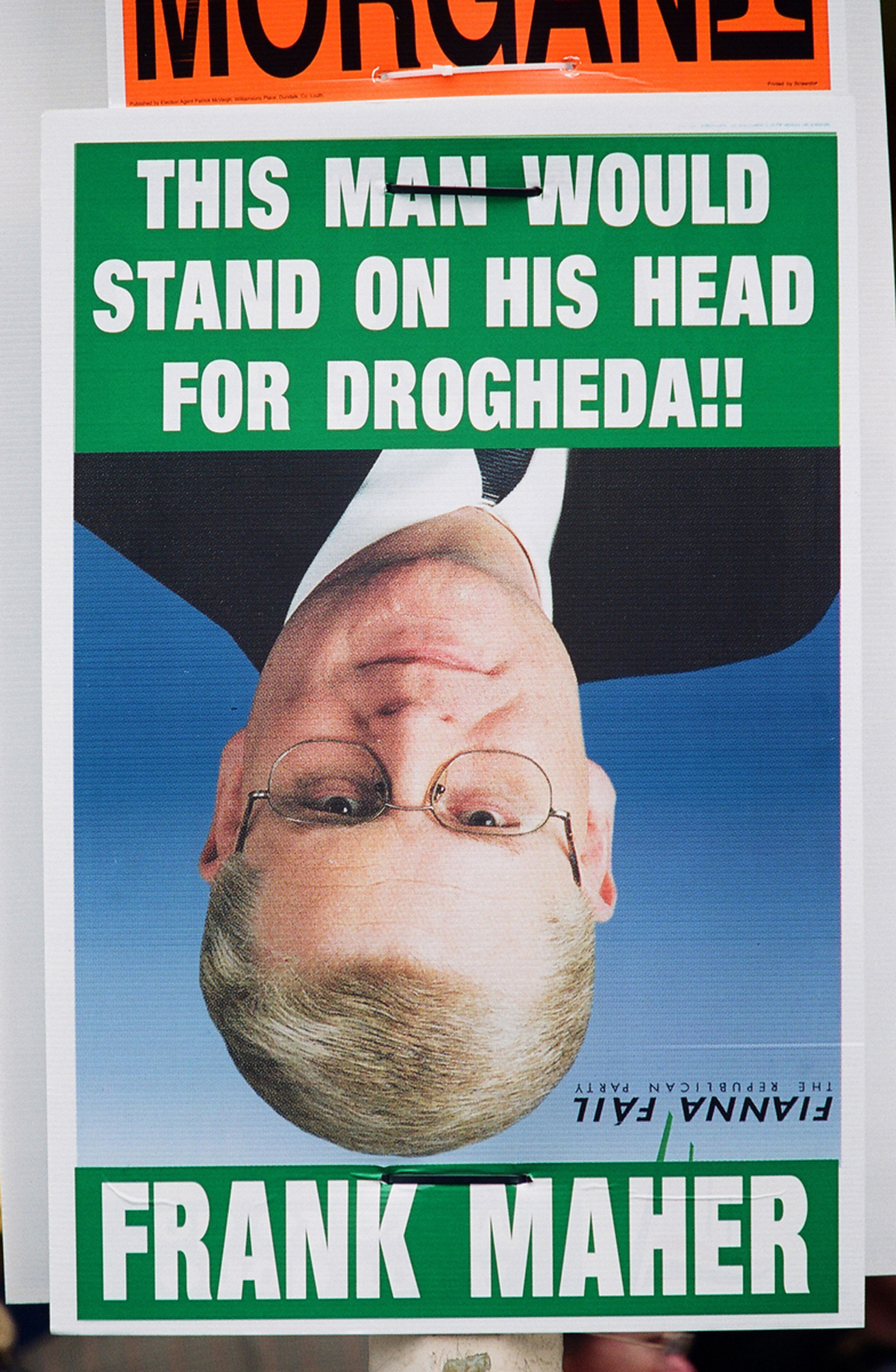
During the boom years of the Irish economy Fianna Fail surfed the wave of prosperity and popular appeal, emerging over successive elections as the country’s leading political party. Each ballot is preceded by an exhaustive nationwide campaign to capture voters, the party leader burning up the miles to engage with his followers and rally support. Babies are kissed, hands shook, promises made. In these moments Bertie Ahern, the Fianna Fail leader, was in his element. He had a natural rapport with what was often referred to as the plain people of Ireland, a connection that for a time translated into a winning streak at the polls. But beyond his hardened party faithful, the love wasn’t unconditional. This would prove the last of the good times before an economic crash transformed the political landscape and saw Ahern’s standing, and that of his party, plummet. Having been the premier force for generations, Ahern’s Fianna Fail were now in the pillory for poor governance, loose bank regulations and an unhealthy obsession with making a quick buck, their once-respected reputation in tatters.
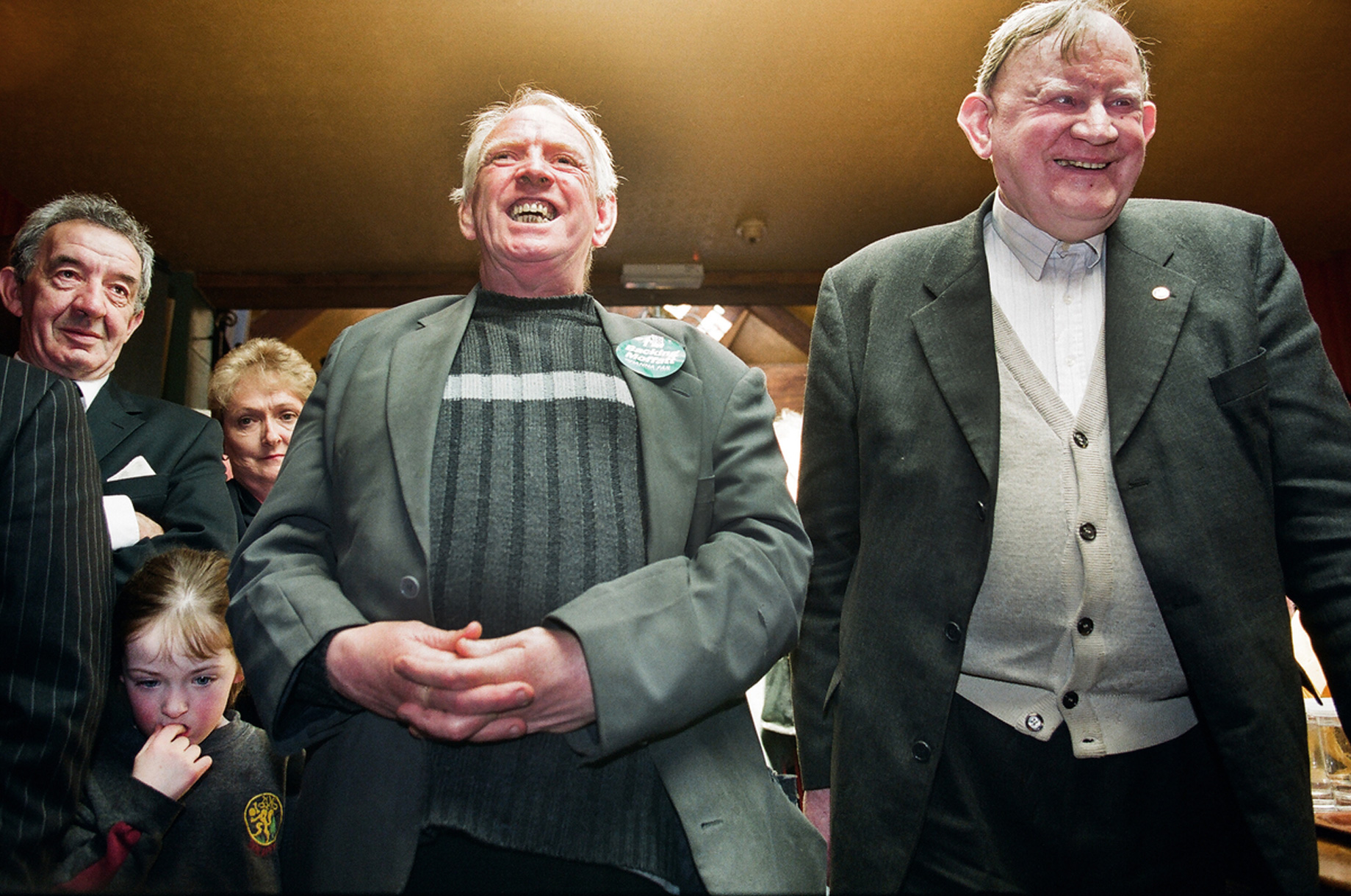
During the boom years of the Irish economy Fianna Fail surfed the wave of prosperity and popular appeal, emerging over successive elections as the country’s leading political party. Each ballot is preceded by an exhaustive nationwide campaign to capture voters, the party leader burning up the miles to engage with his followers and rally support. Babies are kissed, hands shook, promises made. In these moments Bertie Ahern, the Fianna Fail leader, was in his element. He had a natural rapport with what was often referred to as the plain people of Ireland, a connection that for a time translated into a winning streak at the polls. But beyond his hardened party faithful, the love wasn’t unconditional. This would prove the last of the good times before an economic crash transformed the political landscape and saw Ahern’s standing, and that of his party, plummet. Having been the premier force for generations, Ahern’s Fianna Fail were now in the pillory for poor governance, loose bank regulations and an unhealthy obsession with making a quick buck, their once-respected reputation in tatters.
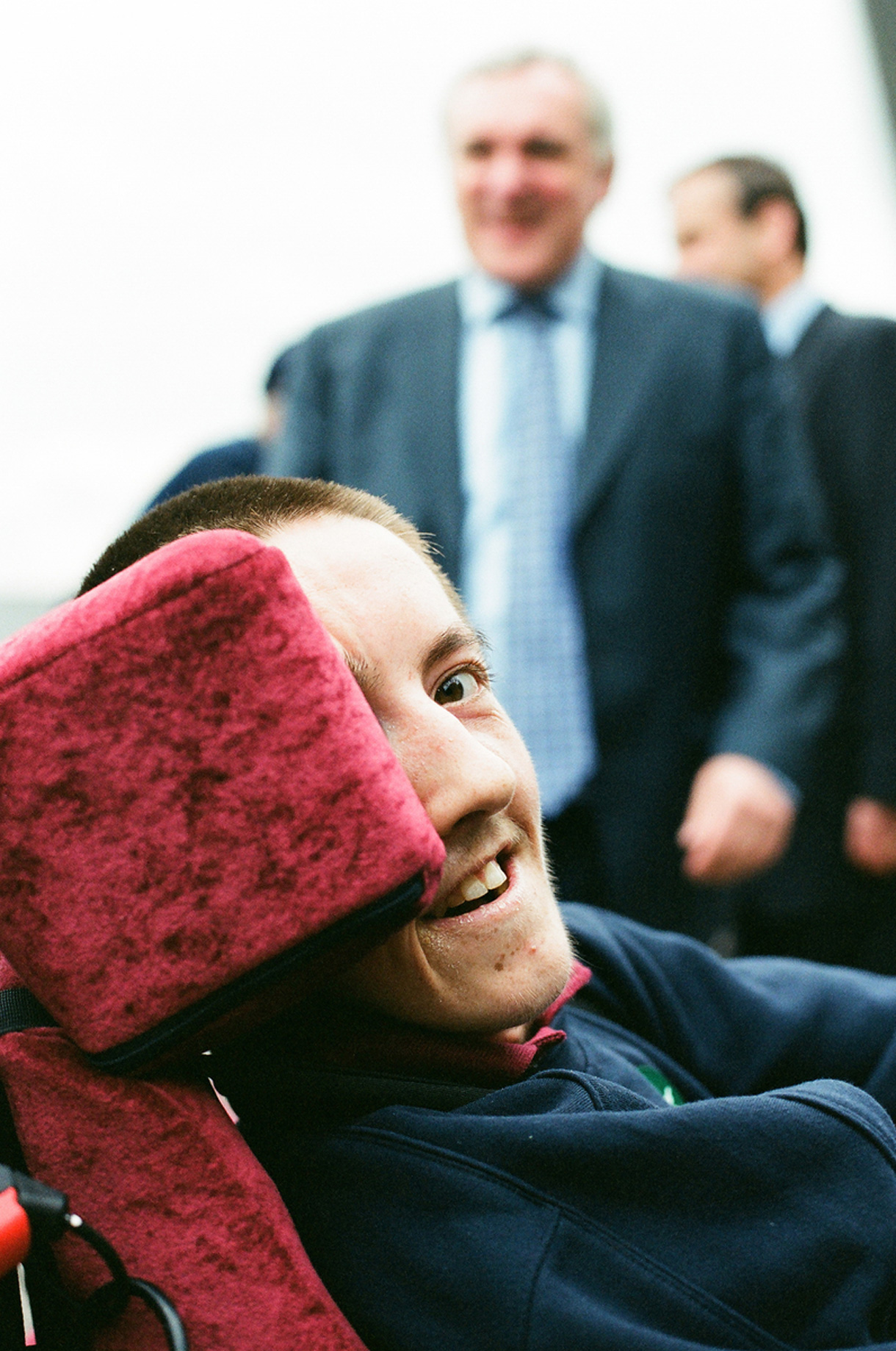
During the boom years of the Irish economy Fianna Fail surfed the wave of prosperity and popular appeal, emerging over successive elections as the country’s leading political party. Each ballot is preceded by an exhaustive nationwide campaign to capture voters, the party leader burning up the miles to engage with his followers and rally support. Babies are kissed, hands shook, promises made. In these moments Bertie Ahern, the Fianna Fail leader, was in his element. He had a natural rapport with what was often referred to as the plain people of Ireland, a connection that for a time translated into a winning streak at the polls. But beyond his hardened party faithful, the love wasn’t unconditional. This would prove the last of the good times before an economic crash transformed the political landscape and saw Ahern’s standing, and that of his party, plummet. Having been the premier force for generations, Ahern’s Fianna Fail were now in the pillory for poor governance, loose bank regulations and an unhealthy obsession with making a quick buck, their once-respected reputation in tatters.
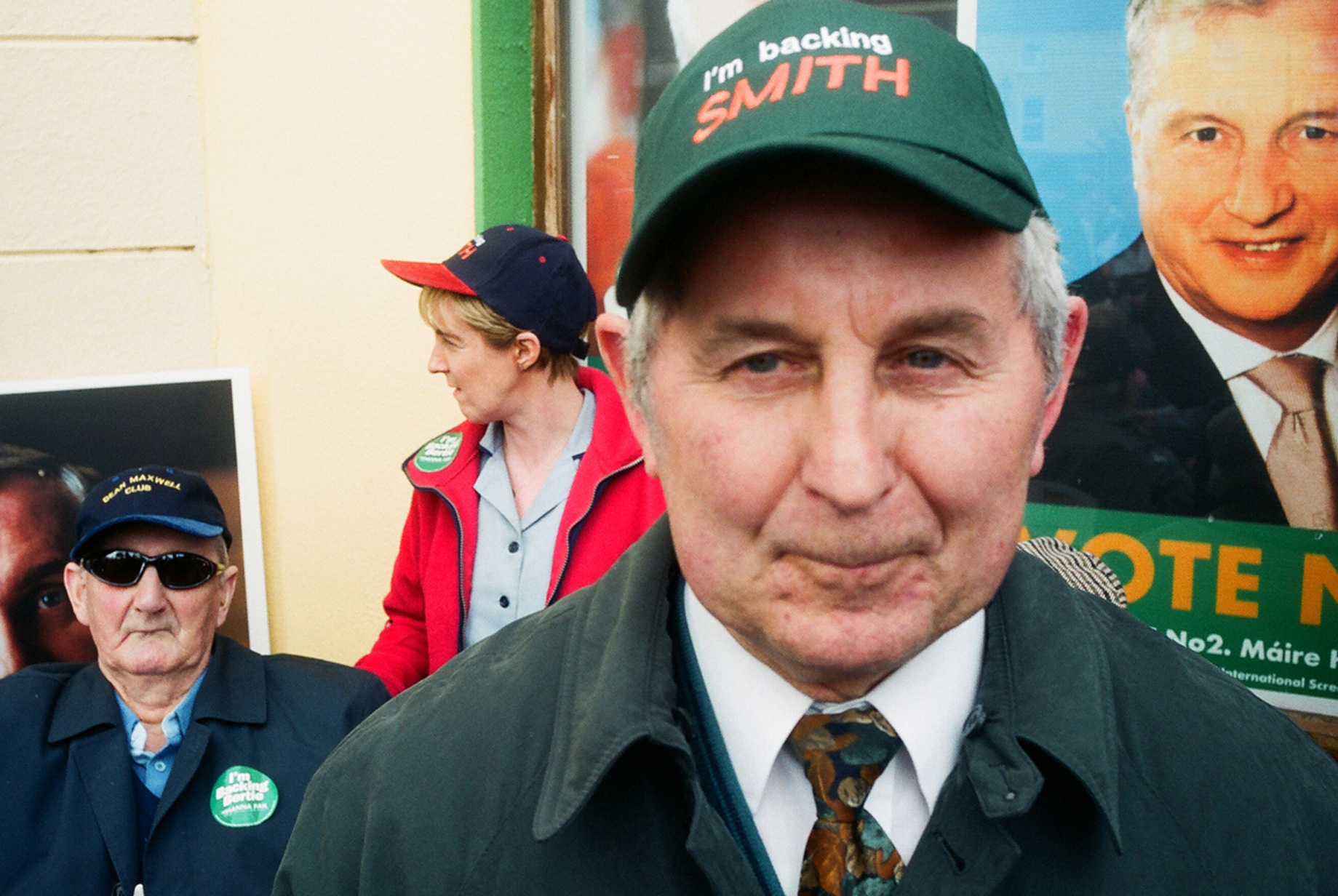
During the boom years of the Irish economy Fianna Fail surfed the wave of prosperity and popular appeal, emerging over successive elections as the country’s leading political party. Each ballot is preceded by an exhaustive nationwide campaign to capture voters, the party leader burning up the miles to engage with his followers and rally support. Babies are kissed, hands shook, promises made. In these moments Bertie Ahern, the Fianna Fail leader, was in his element. He had a natural rapport with what was often referred to as the plain people of Ireland, a connection that for a time translated into a winning streak at the polls. But beyond his hardened party faithful, the love wasn’t unconditional. This would prove the last of the good times before an economic crash transformed the political landscape and saw Ahern’s standing, and that of his party, plummet. Having been the premier force for generations, Ahern’s Fianna Fail were now in the pillory for poor governance, loose bank regulations and an unhealthy obsession with making a quick buck, their once-respected reputation in tatters.
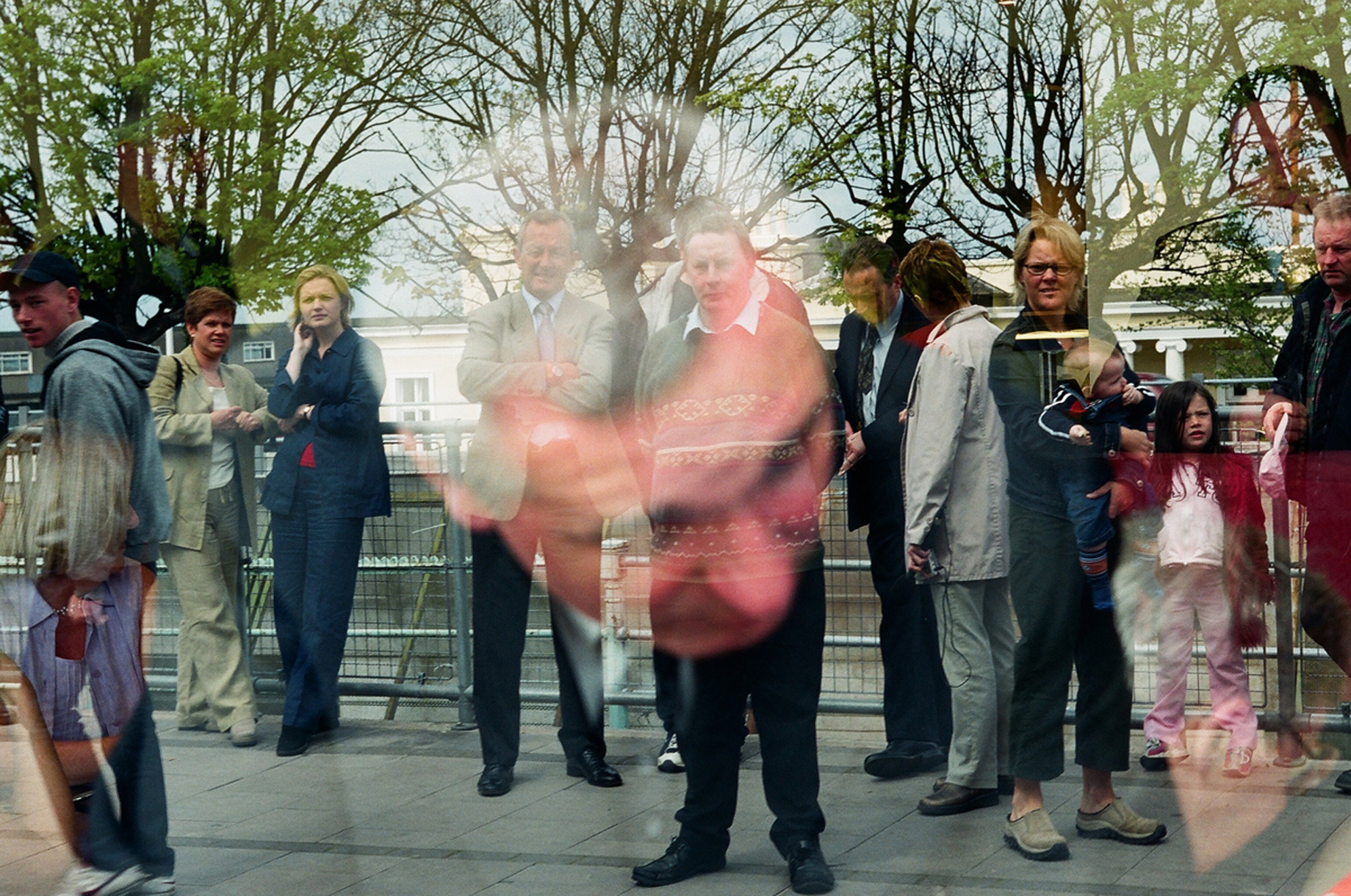
During the boom years of the Irish economy Fianna Fail surfed the wave of prosperity and popular appeal, emerging over successive elections as the country’s leading political party. Each ballot is preceded by an exhaustive nationwide campaign to capture voters, the party leader burning up the miles to engage with his followers and rally support. Babies are kissed, hands shook, promises made. In these moments Bertie Ahern, the Fianna Fail leader, was in his element. He had a natural rapport with what was often referred to as the plain people of Ireland, a connection that for a time translated into a winning streak at the polls. But beyond his hardened party faithful, the love wasn’t unconditional. This would prove the last of the good times before an economic crash transformed the political landscape and saw Ahern’s standing, and that of his party, plummet. Having been the premier force for generations, Ahern’s Fianna Fail were now in the pillory for poor governance, loose bank regulations and an unhealthy obsession with making a quick buck, their once-respected reputation in tatters.
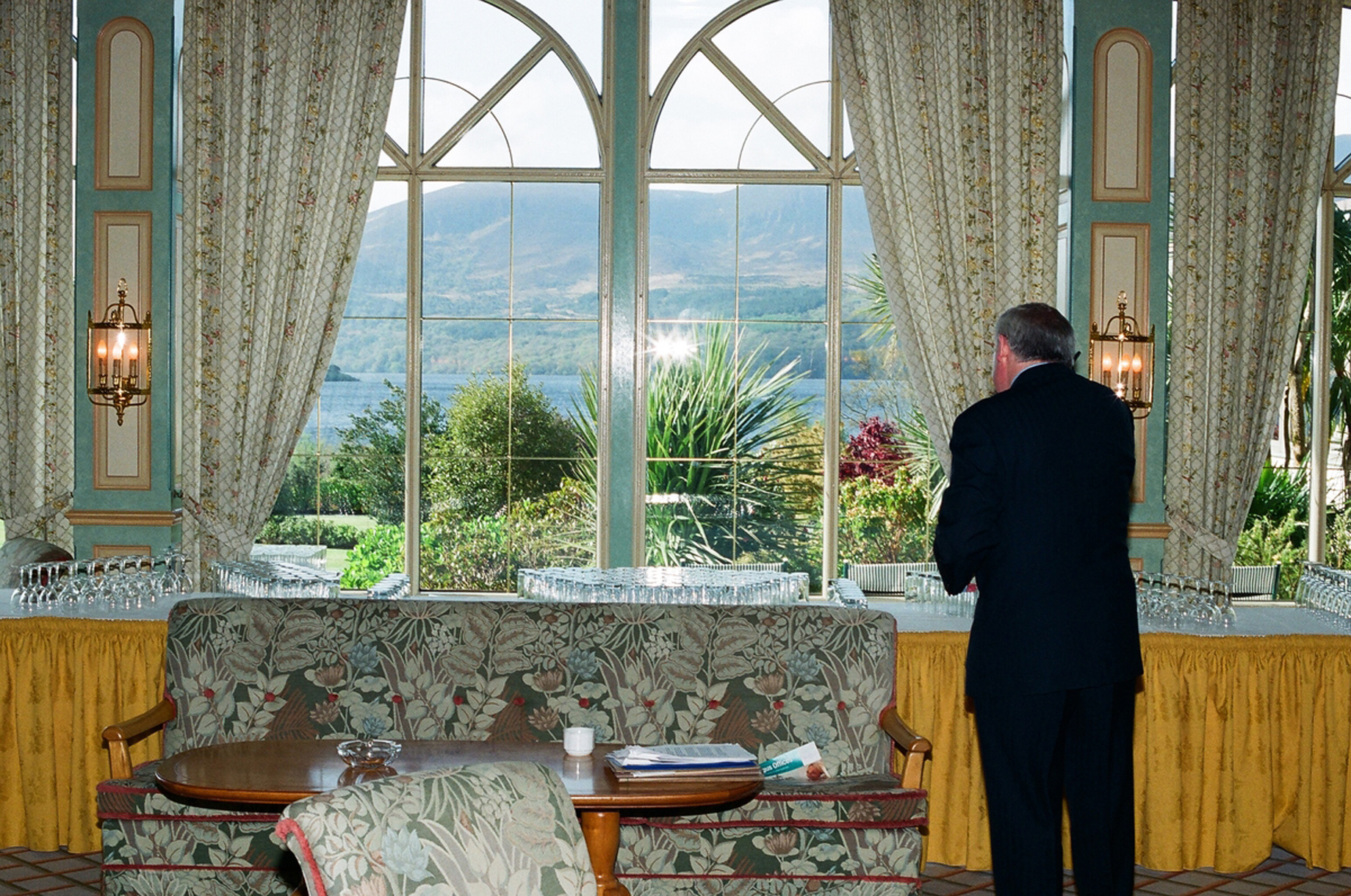
During the boom years of the Irish economy Fianna Fail surfed the wave of prosperity and popular appeal, emerging over successive elections as the country’s leading political party. Each ballot is preceded by an exhaustive nationwide campaign to capture voters, the party leader burning up the miles to engage with his followers and rally support. Babies are kissed, hands shook, promises made. In these moments Bertie Ahern, the Fianna Fail leader, was in his element. He had a natural rapport with what was often referred to as the plain people of Ireland, a connection that for a time translated into a winning streak at the polls. But beyond his hardened party faithful, the love wasn’t unconditional. This would prove the last of the good times before an economic crash transformed the political landscape and saw Ahern’s standing, and that of his party, plummet. Having been the premier force for generations, Ahern’s Fianna Fail were now in the pillory for poor governance, loose bank regulations and an unhealthy obsession with making a quick buck, their once-respected reputation in tatters.
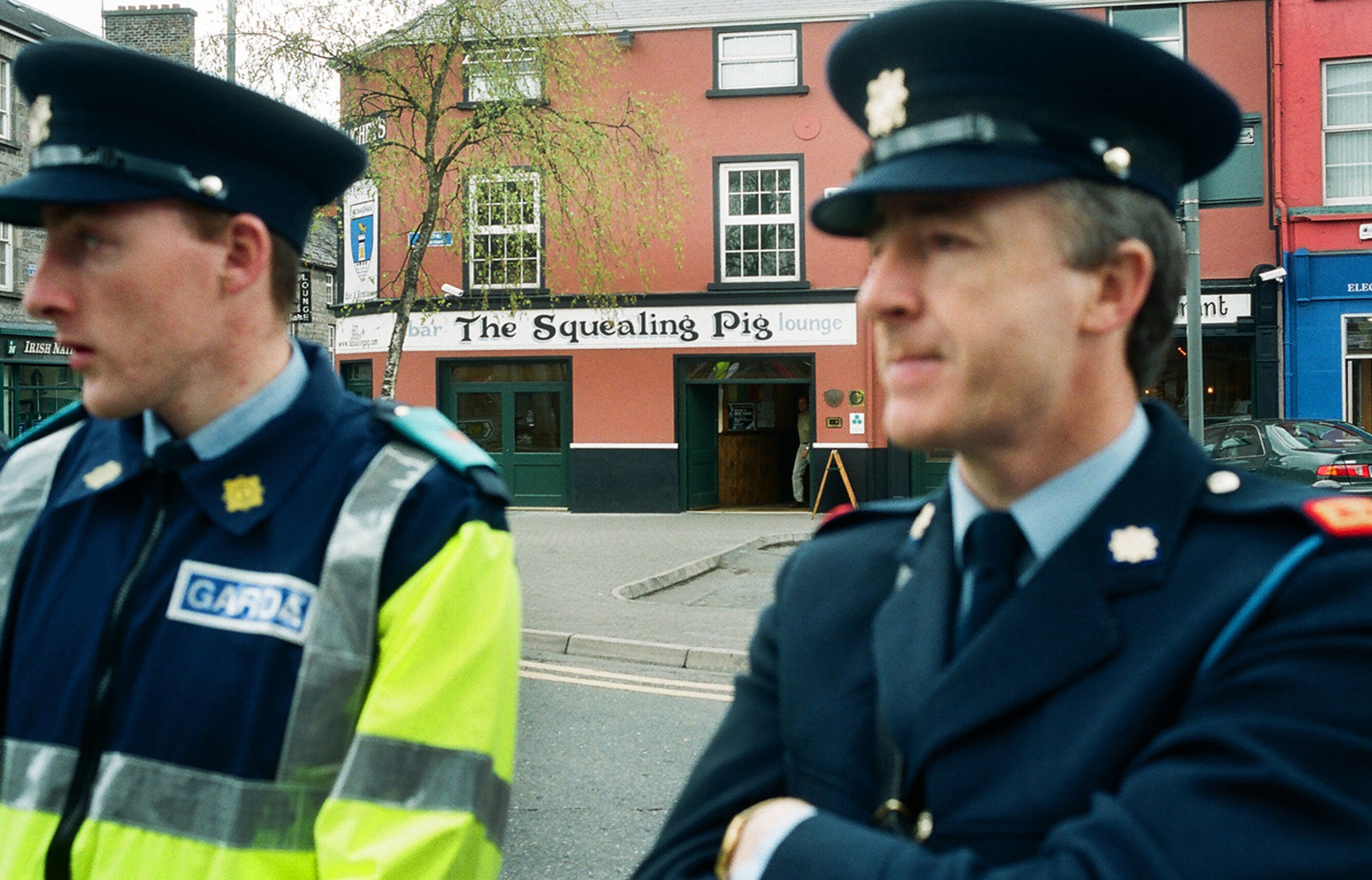
During the boom years of the Irish economy Fianna Fail surfed the wave of prosperity and popular appeal, emerging over successive elections as the country’s leading political party. Each ballot is preceded by an exhaustive nationwide campaign to capture voters, the party leader burning up the miles to engage with his followers and rally support. Babies are kissed, hands shook, promises made. In these moments Bertie Ahern, the Fianna Fail leader, was in his element. He had a natural rapport with what was often referred to as the plain people of Ireland, a connection that for a time translated into a winning streak at the polls. But beyond his hardened party faithful, the love wasn’t unconditional. This would prove the last of the good times before an economic crash transformed the political landscape and saw Ahern’s standing, and that of his party, plummet. Having been the premier force for generations, Ahern’s Fianna Fail were now in the pillory for poor governance, loose bank regulations and an unhealthy obsession with making a quick buck, their once-respected reputation in tatters.
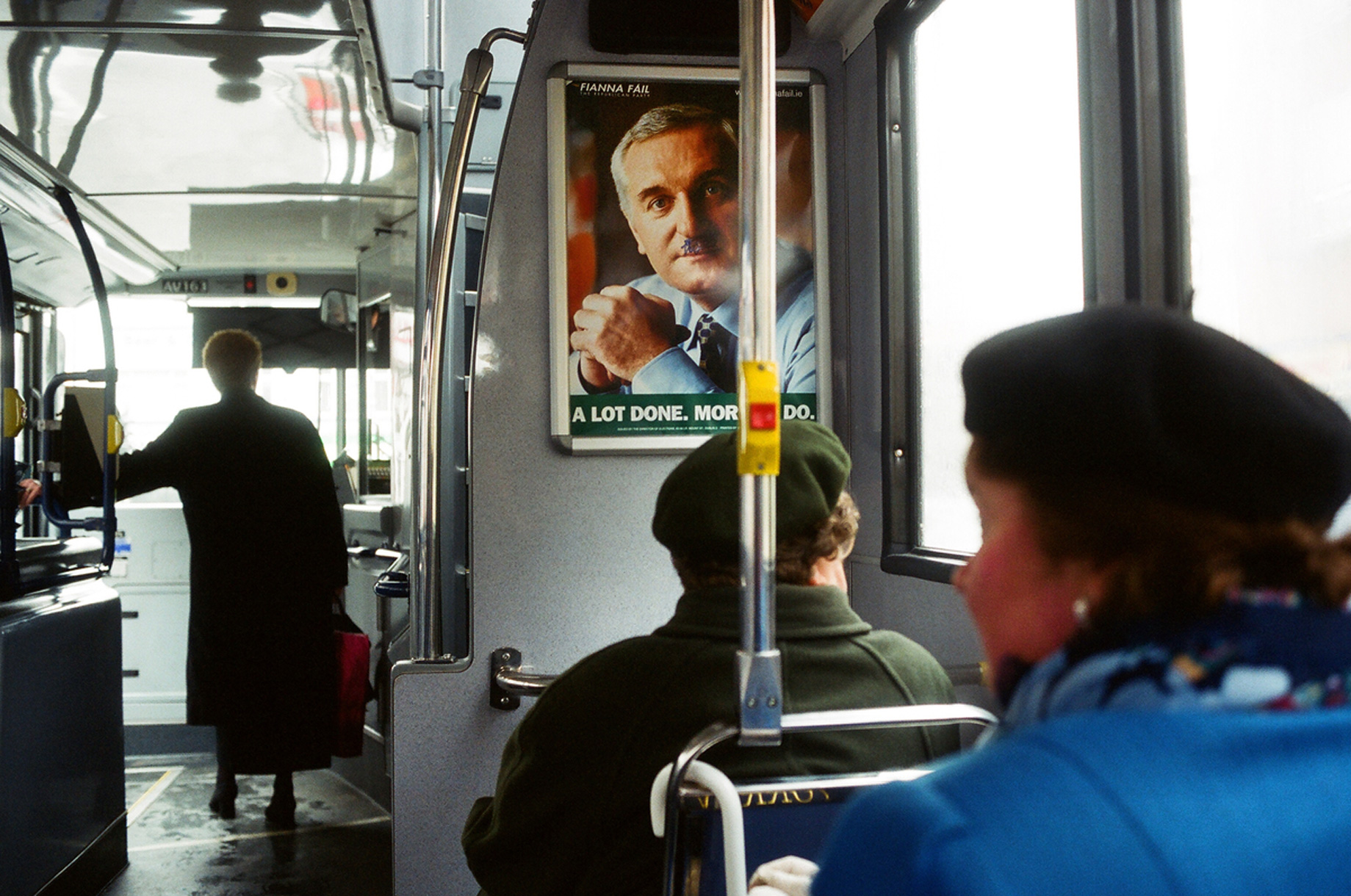
During the boom years of the Irish economy Fianna Fail surfed the wave of prosperity and popular appeal, emerging over successive elections as the country’s leading political party. Each ballot is preceded by an exhaustive nationwide campaign to capture voters, the party leader burning up the miles to engage with his followers and rally support. Babies are kissed, hands shook, promises made. In these moments Bertie Ahern, the Fianna Fail leader, was in his element. He had a natural rapport with what was often referred to as the plain people of Ireland, a connection that for a time translated into a winning streak at the polls. But beyond his hardened party faithful, the love wasn’t unconditional. This would prove the last of the good times before an economic crash transformed the political landscape and saw Ahern’s standing, and that of his party, plummet. Having been the premier force for generations, Ahern’s Fianna Fail were now in the pillory for poor governance, loose bank regulations and an unhealthy obsession with making a quick buck, their once-respected reputation in tatters.
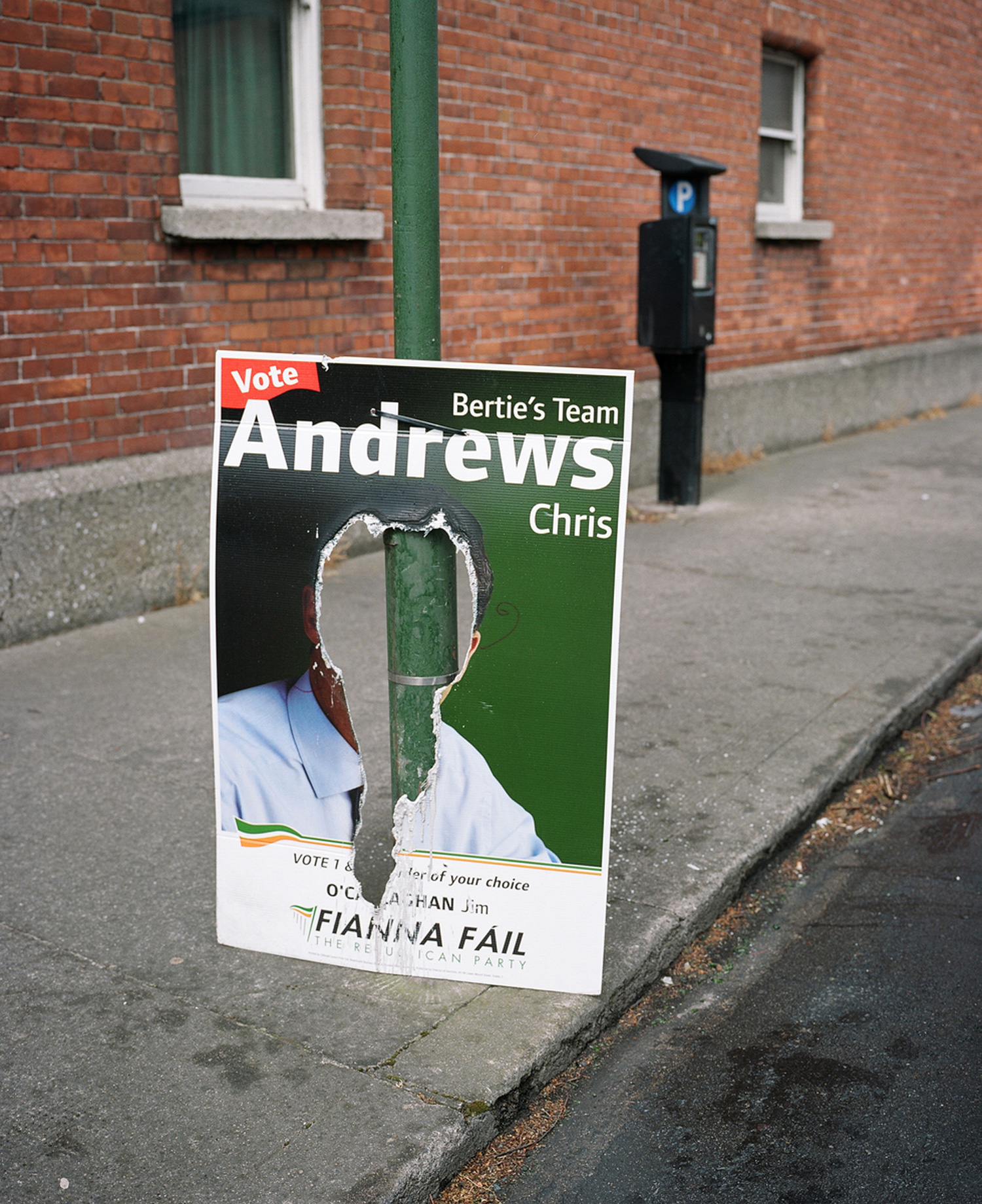
During the boom years of the Irish economy Fianna Fail surfed the wave of prosperity and popular appeal, emerging over successive elections as the country’s leading political party. Each ballot is preceded by an exhaustive nationwide campaign to capture voters, the party leader burning up the miles to engage with his followers and rally support. Babies are kissed, hands shook, promises made. In these moments Bertie Ahern, the Fianna Fail leader, was in his element. He had a natural rapport with what was often referred to as the plain people of Ireland, a connection that for a time translated into a winning streak at the polls. But beyond his hardened party faithful, the love wasn’t unconditional. This would prove the last of the good times before an economic crash transformed the political landscape and saw Ahern’s standing, and that of his party, plummet. Having been the premier force for generations, Ahern’s Fianna Fail were now in the pillory for poor governance, loose bank regulations and an unhealthy obsession with making a quick buck, their once-respected reputation in tatters.
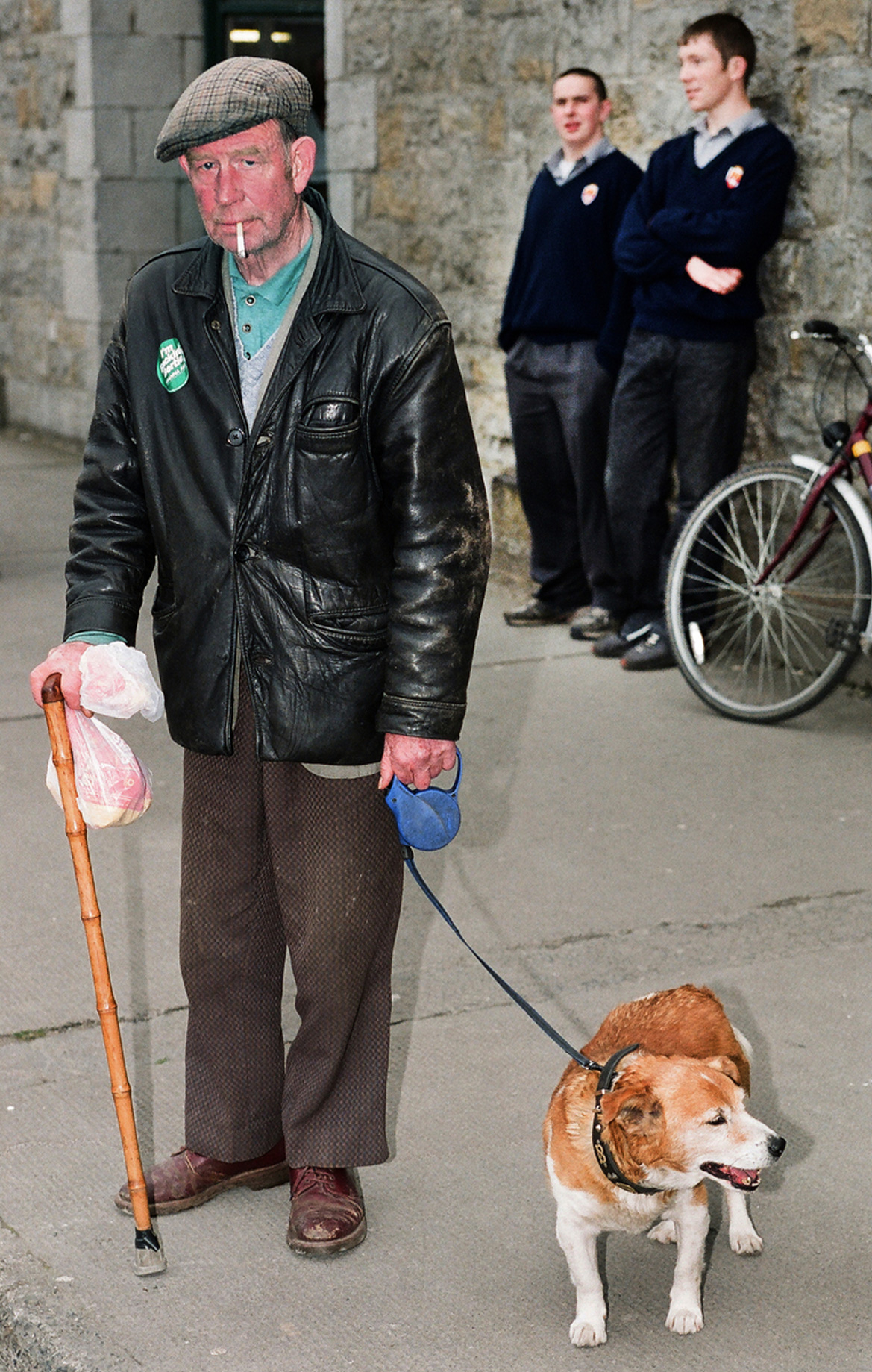
During the boom years of the Irish economy Fianna Fail surfed the wave of prosperity and popular appeal, emerging over successive elections as the country’s leading political party. Each ballot is preceded by an exhaustive nationwide campaign to capture voters, the party leader burning up the miles to engage with his followers and rally support. Babies are kissed, hands shook, promises made. In these moments Bertie Ahern, the Fianna Fail leader, was in his element. He had a natural rapport with what was often referred to as the plain people of Ireland, a connection that for a time translated into a winning streak at the polls. But beyond his hardened party faithful, the love wasn’t unconditional. This would prove the last of the good times before an economic crash transformed the political landscape and saw Ahern’s standing, and that of his party, plummet. Having been the premier force for generations, Ahern’s Fianna Fail were now in the pillory for poor governance, loose bank regulations and an unhealthy obsession with making a quick buck, their once-respected reputation in tatters.
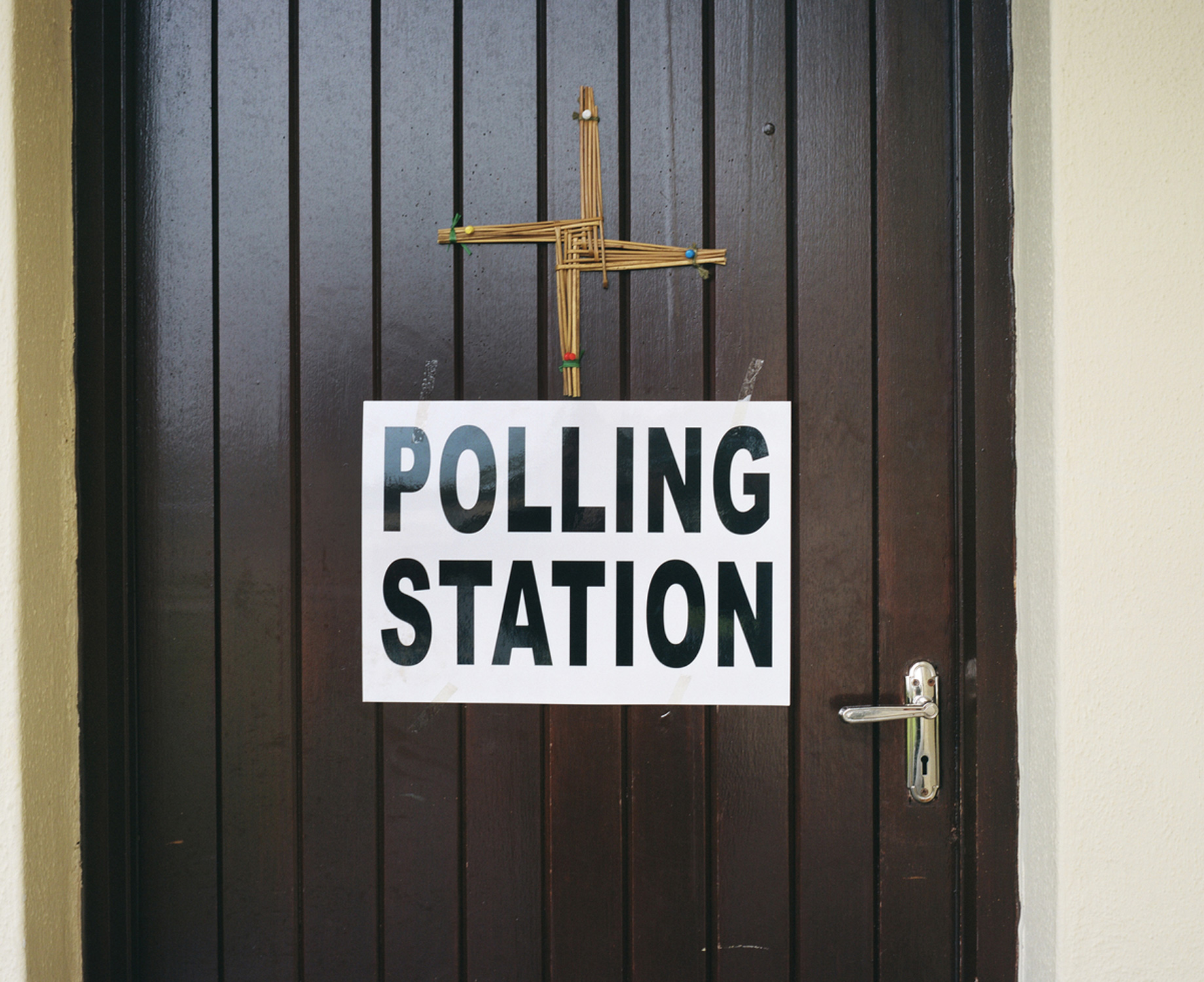
During the boom years of the Irish economy Fianna Fail surfed the wave of prosperity and popular appeal, emerging over successive elections as the country’s leading political party. Each ballot is preceded by an exhaustive nationwide campaign to capture voters, the party leader burning up the miles to engage with his followers and rally support. Babies are kissed, hands shook, promises made. In these moments Bertie Ahern, the Fianna Fail leader, was in his element. He had a natural rapport with what was often referred to as the plain people of Ireland, a connection that for a time translated into a winning streak at the polls. But beyond his hardened party faithful, the love wasn’t unconditional. This would prove the last of the good times before an economic crash transformed the political landscape and saw Ahern’s standing, and that of his party, plummet. Having been the premier force for generations, Ahern’s Fianna Fail were now in the pillory for poor governance, loose bank regulations and an unhealthy obsession with making a quick buck, their once-respected reputation in tatters.
Bertie My Ass








































